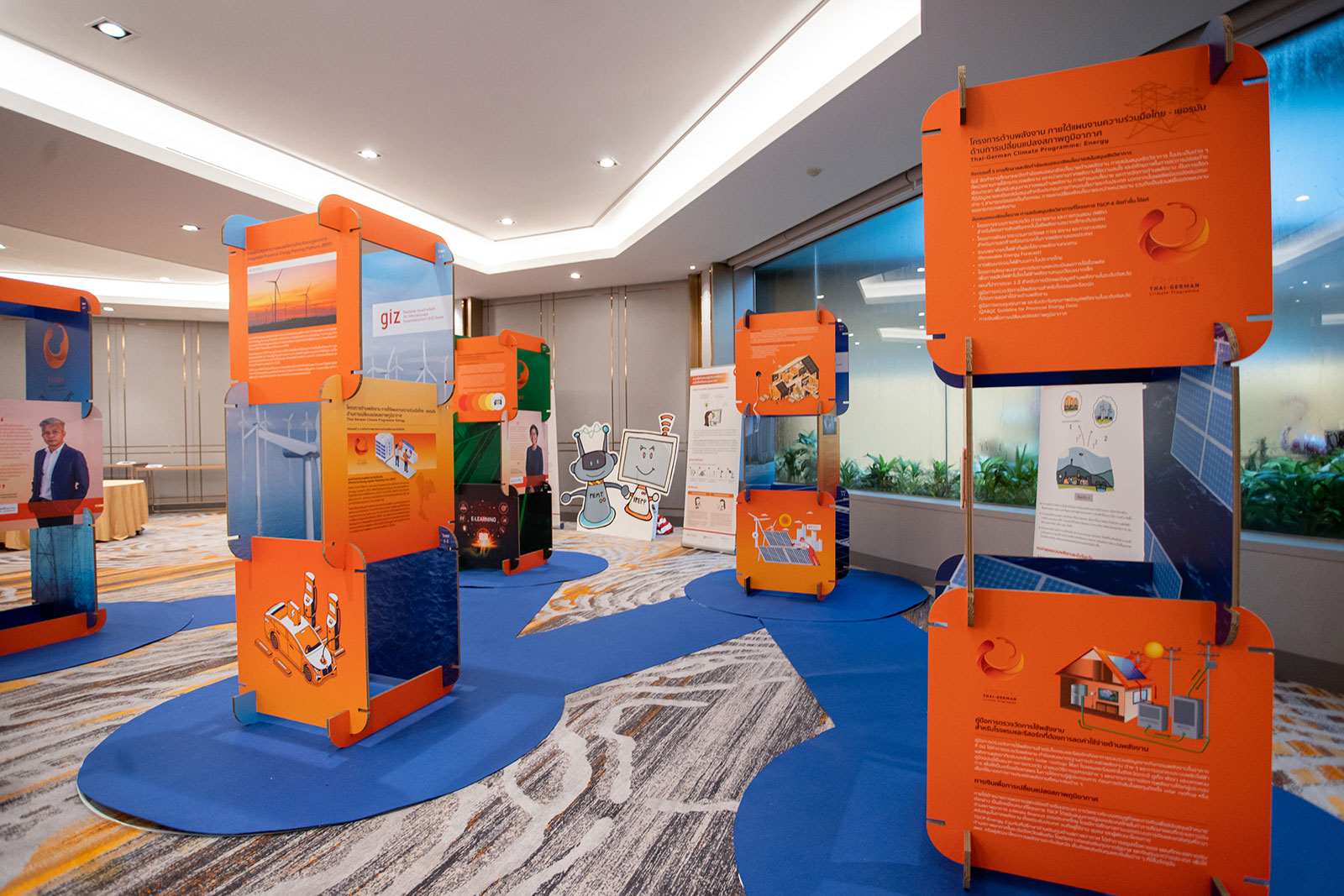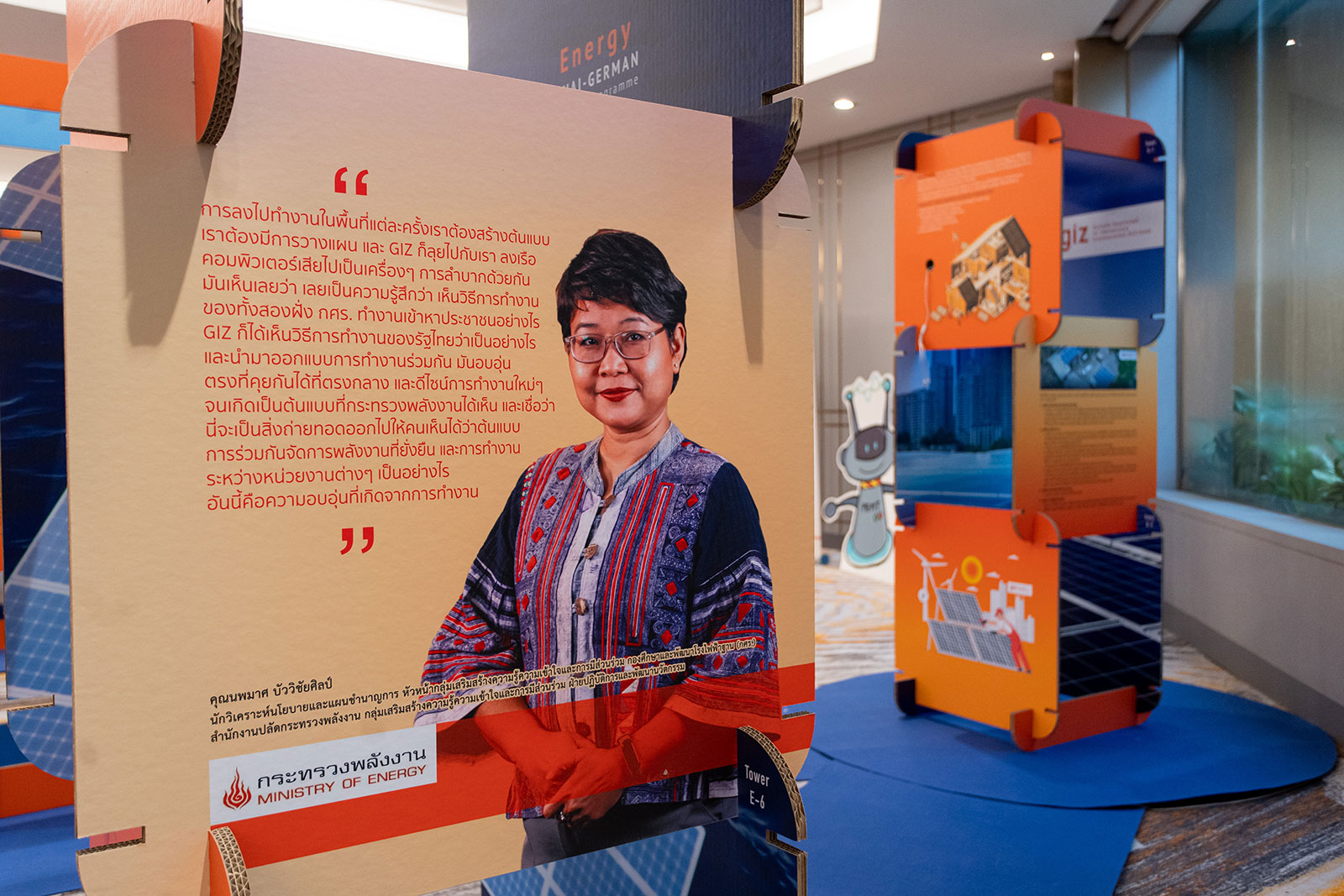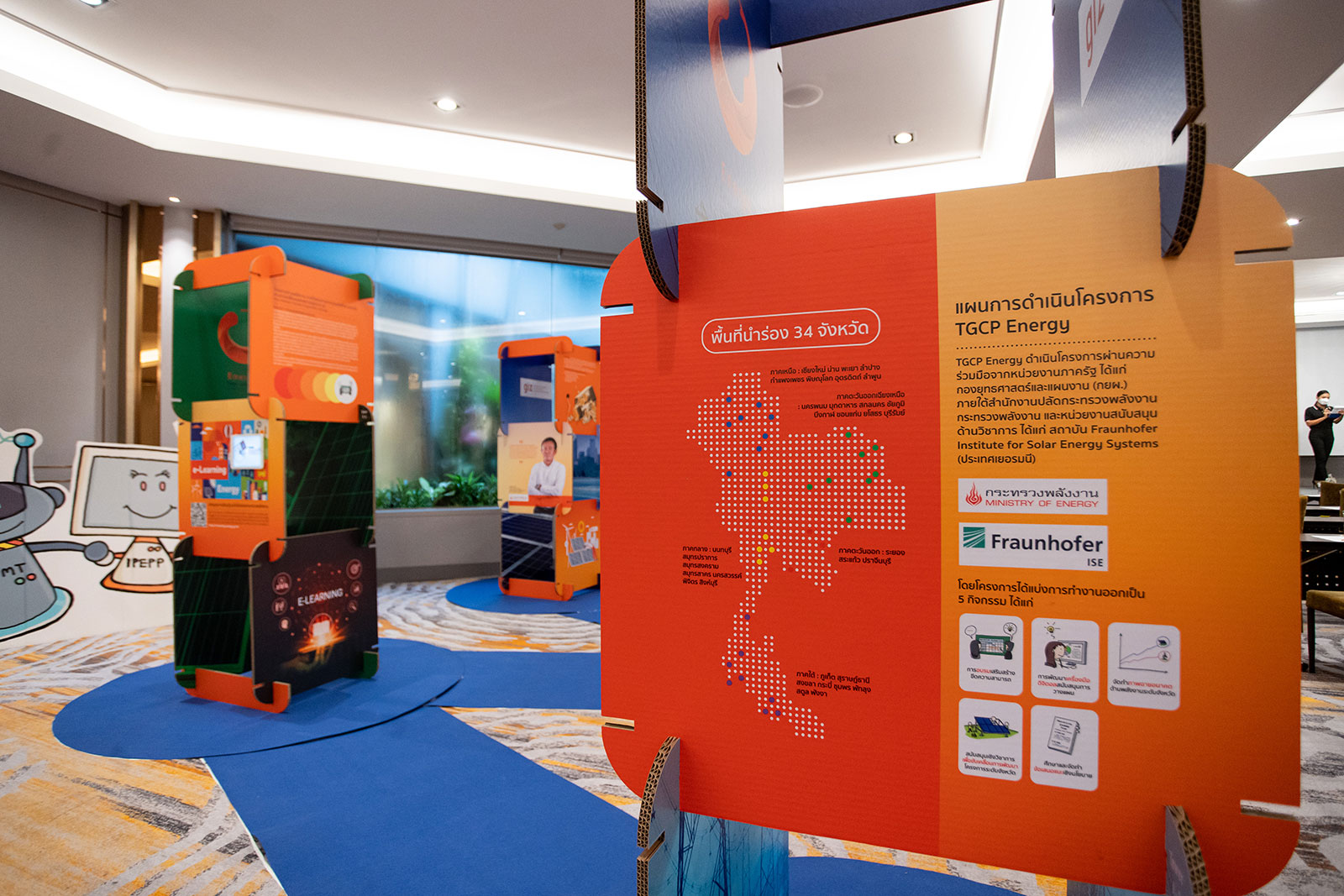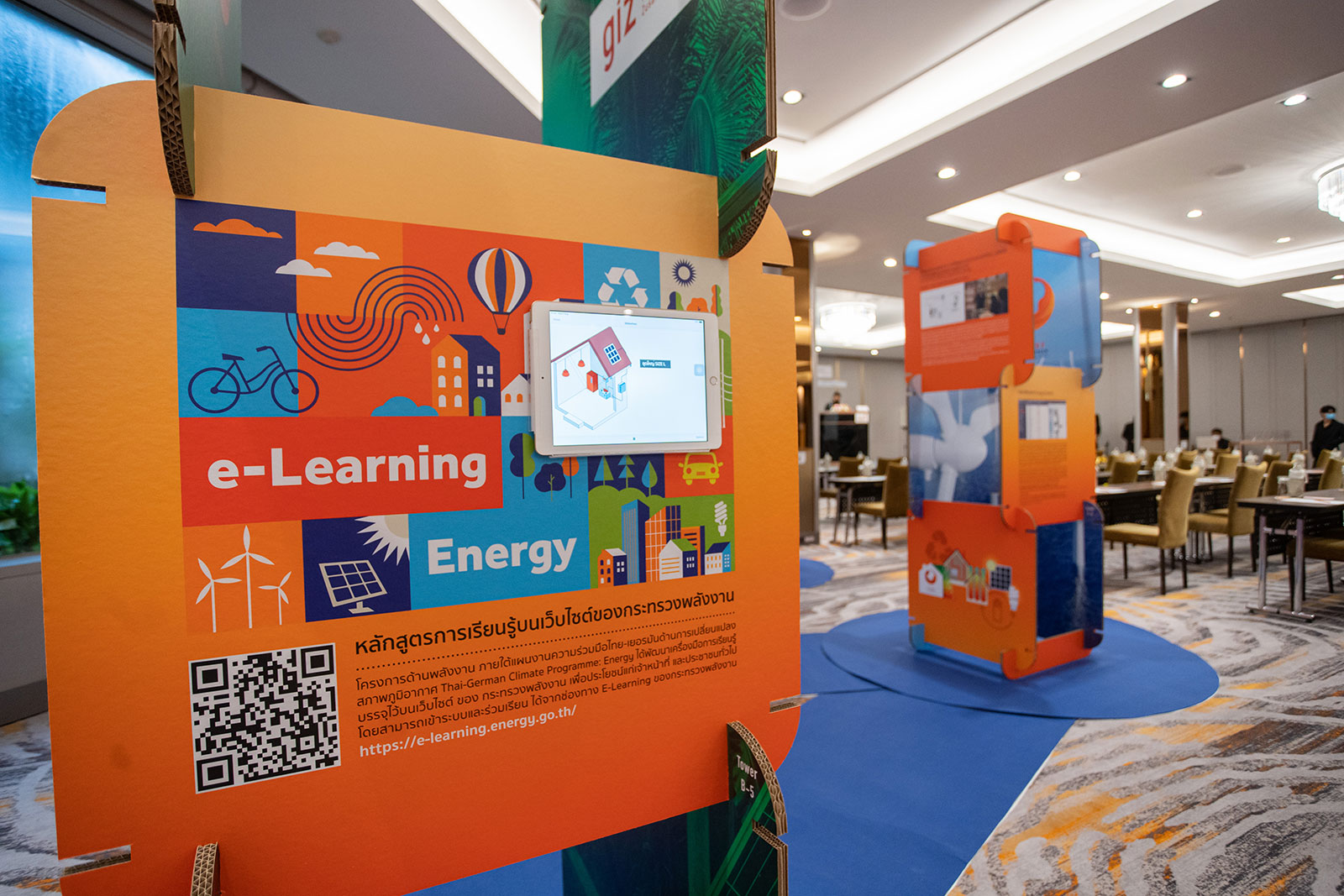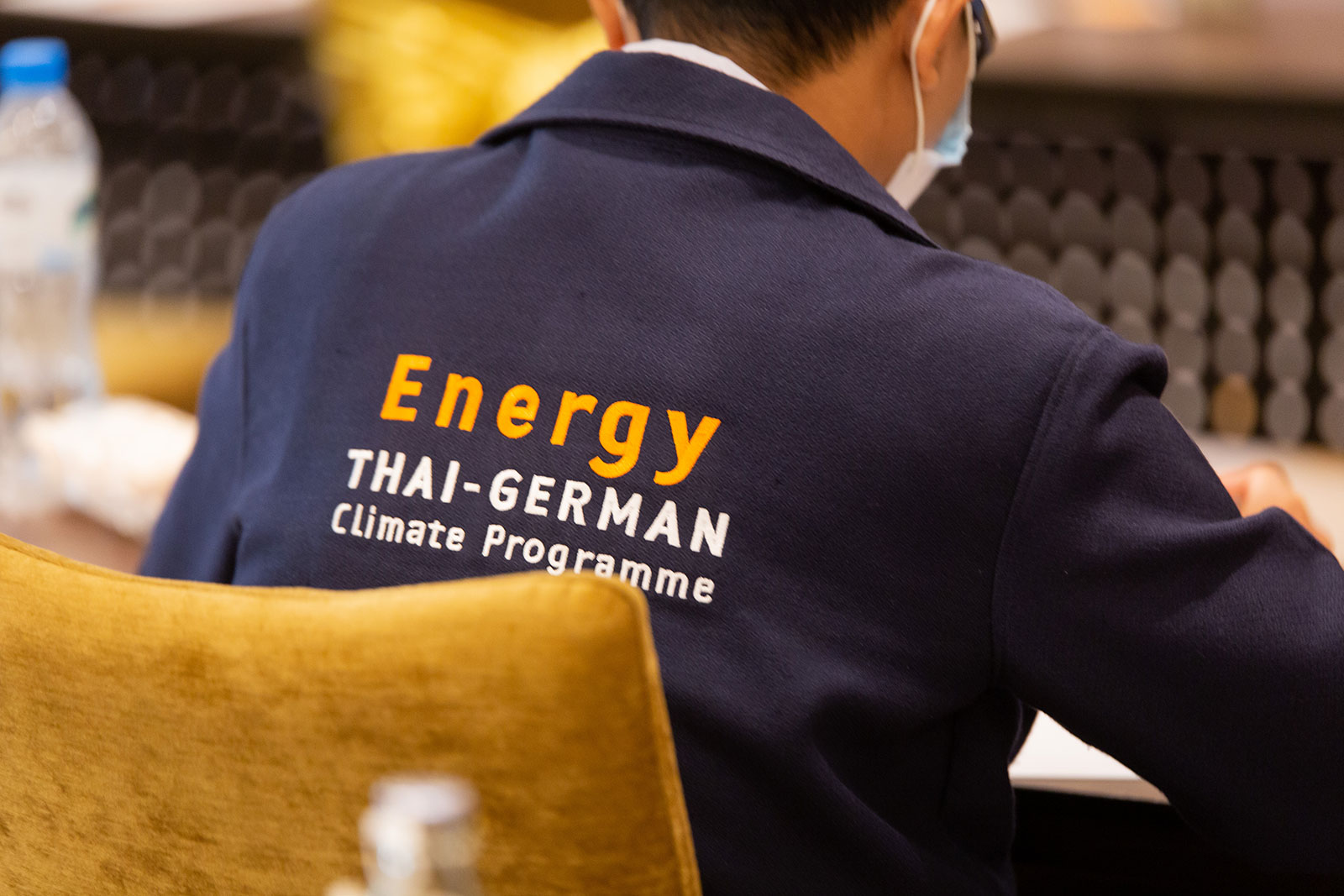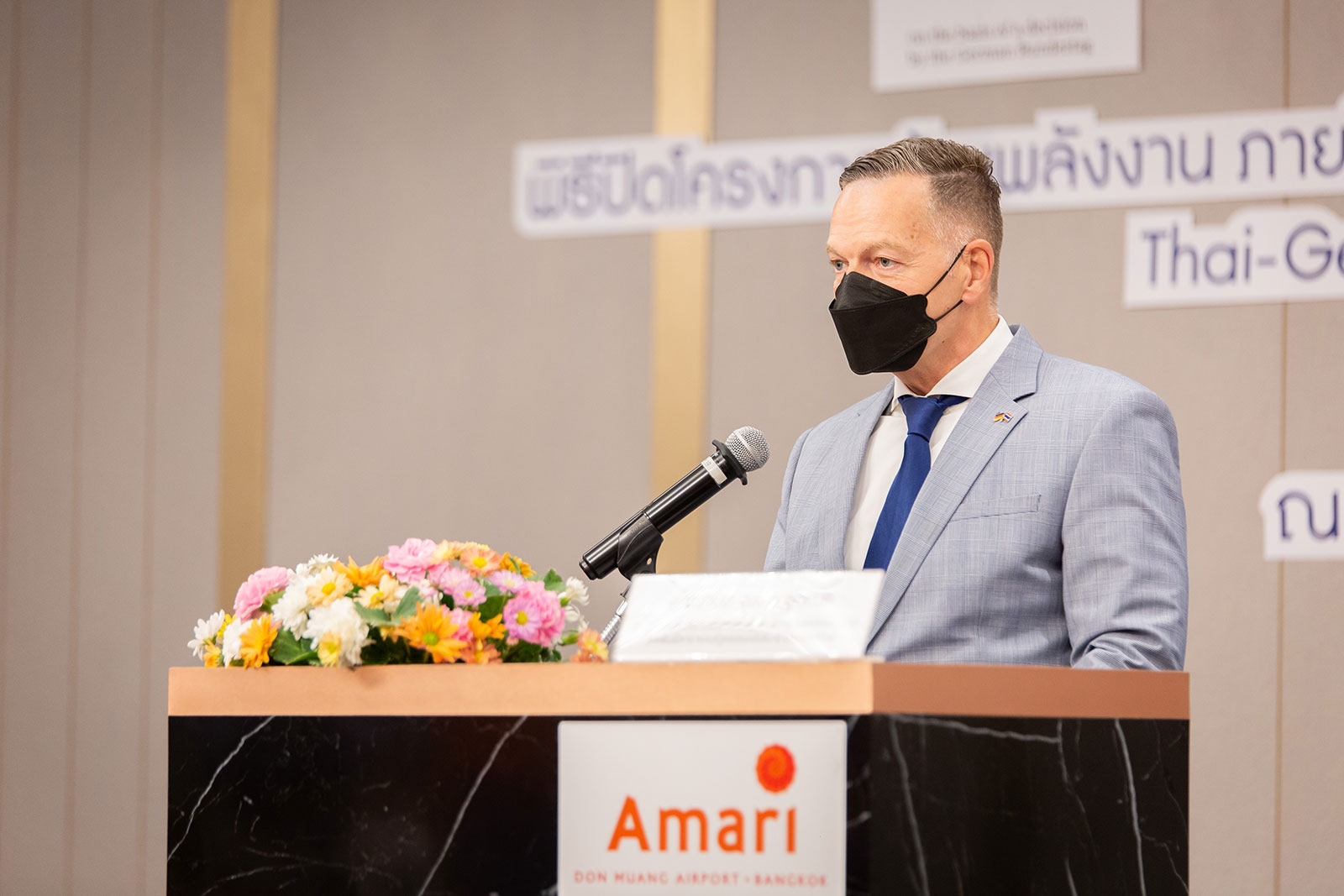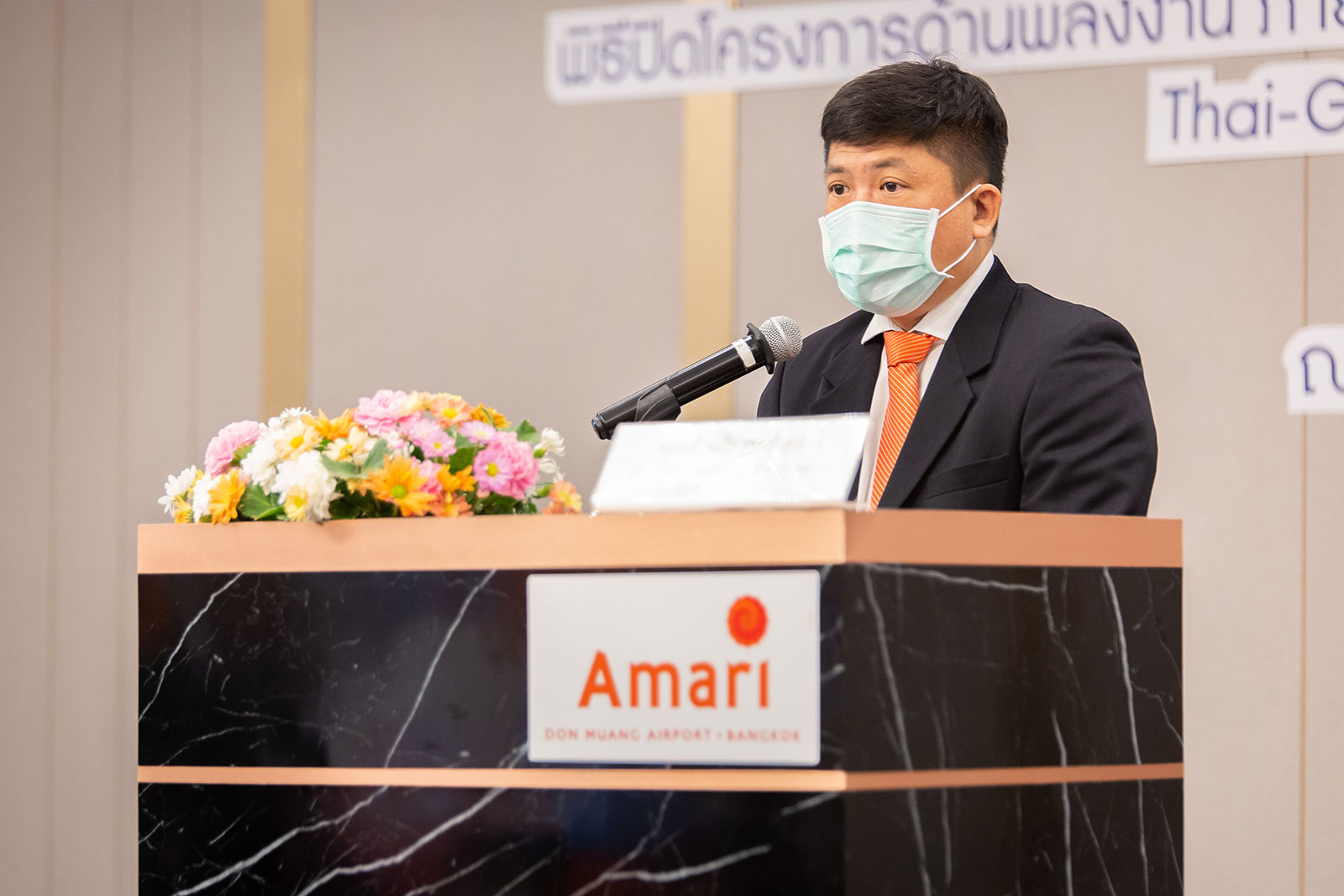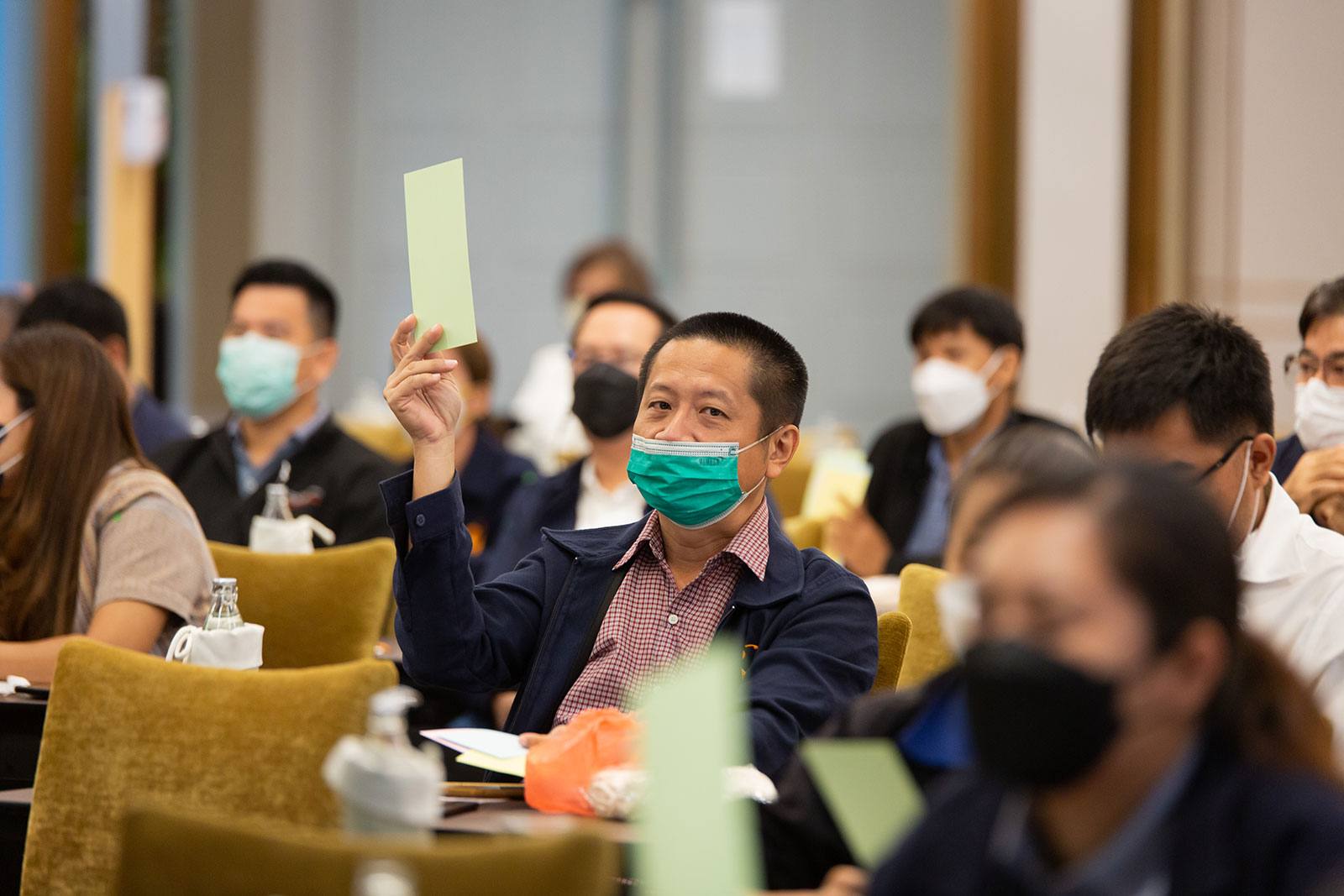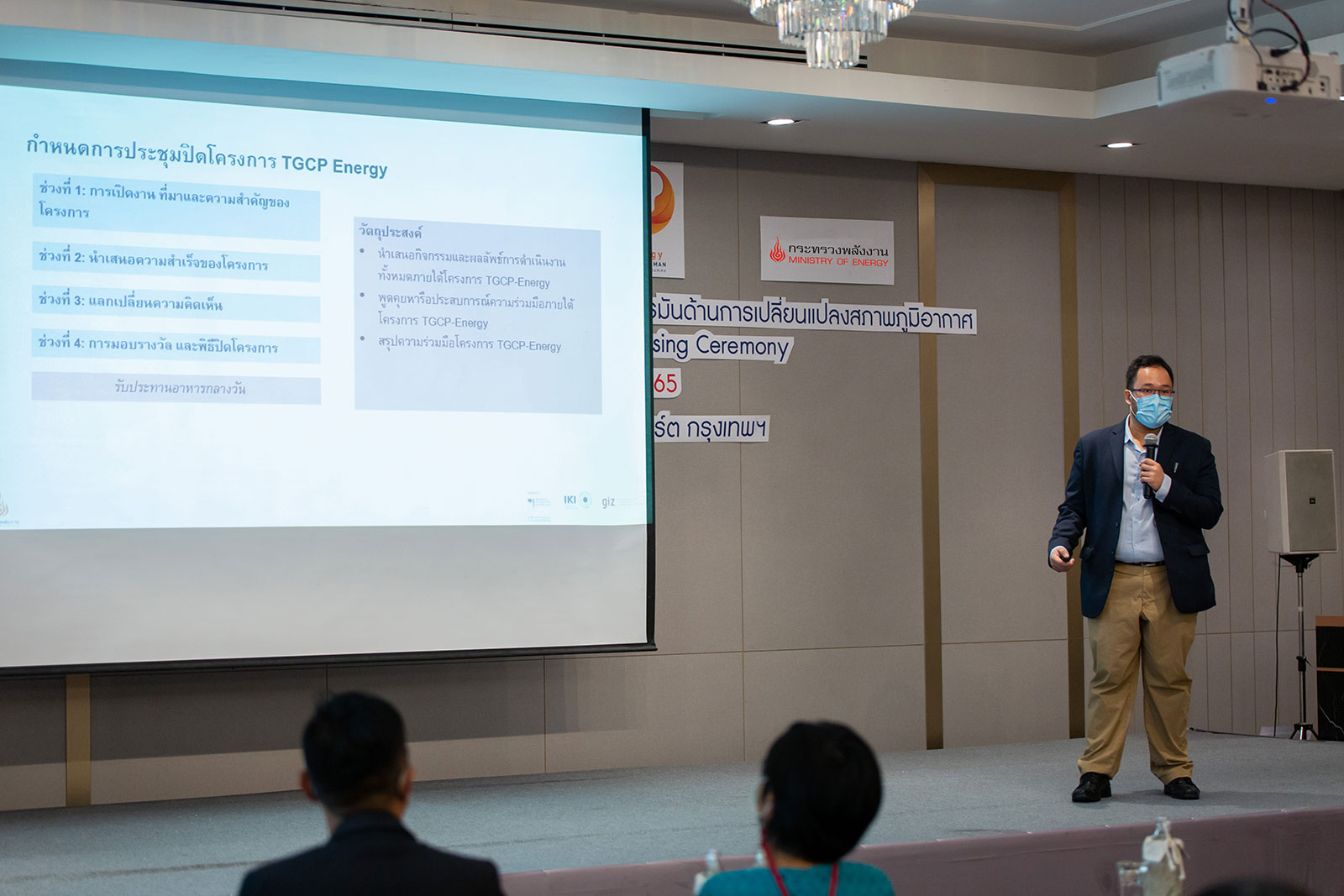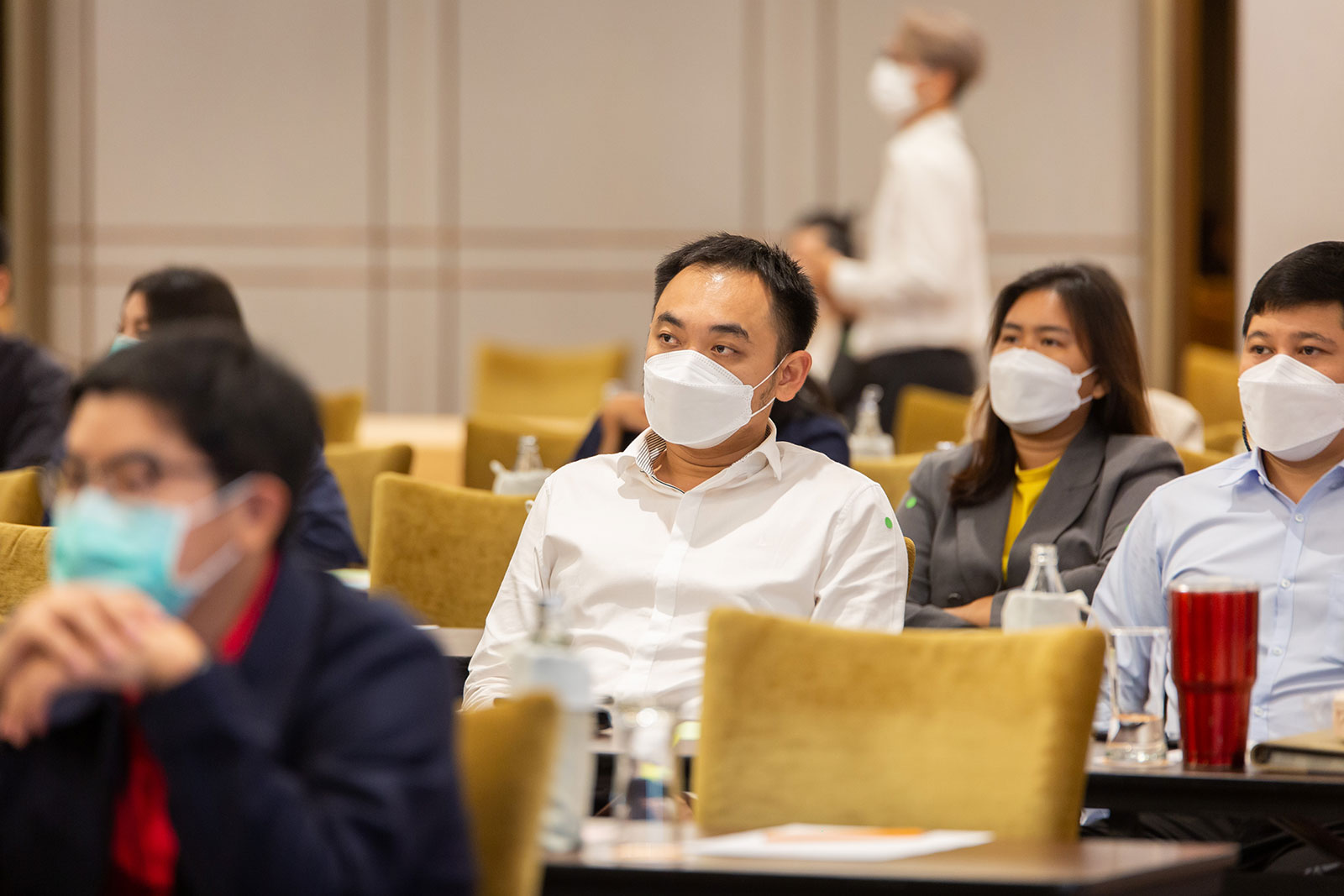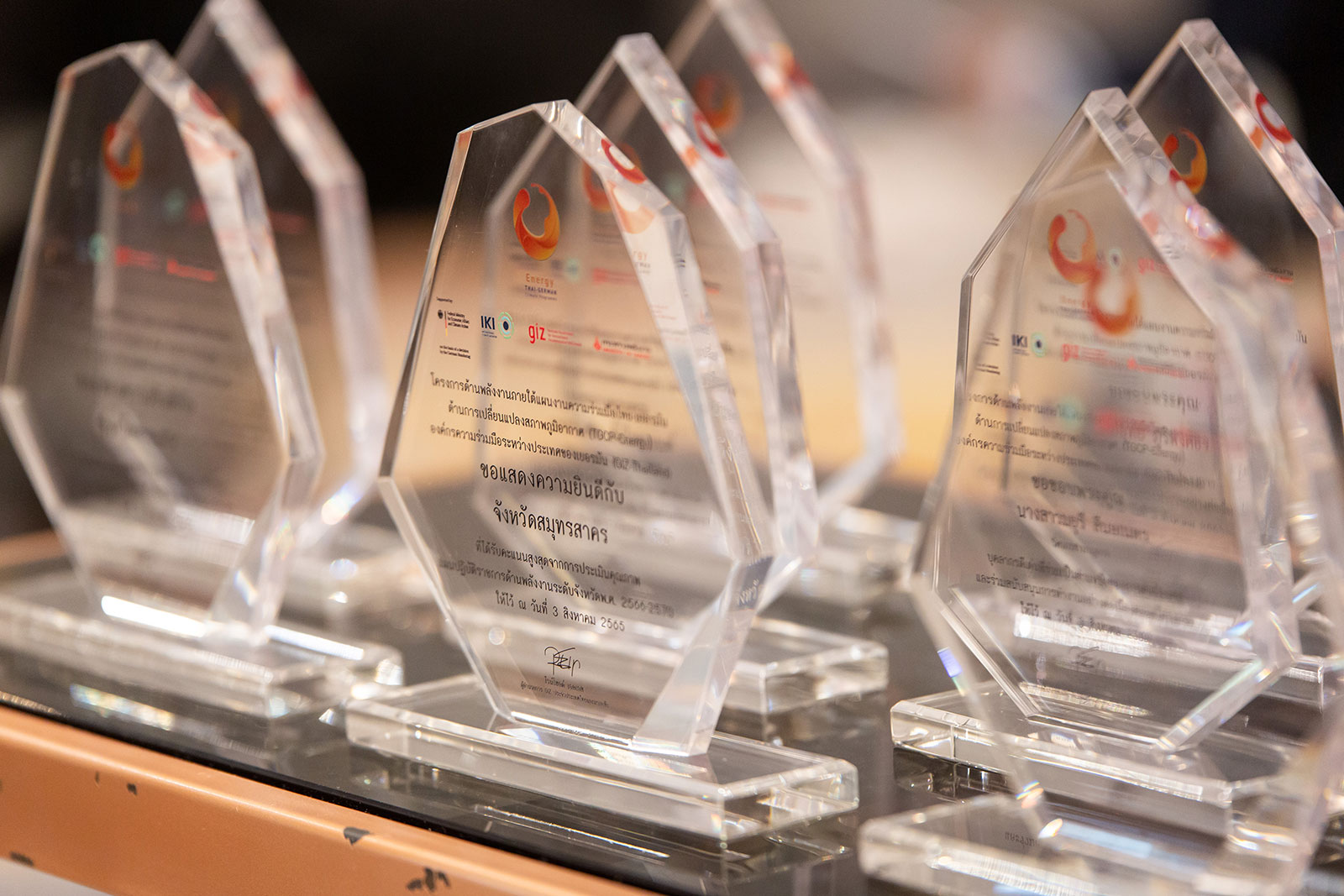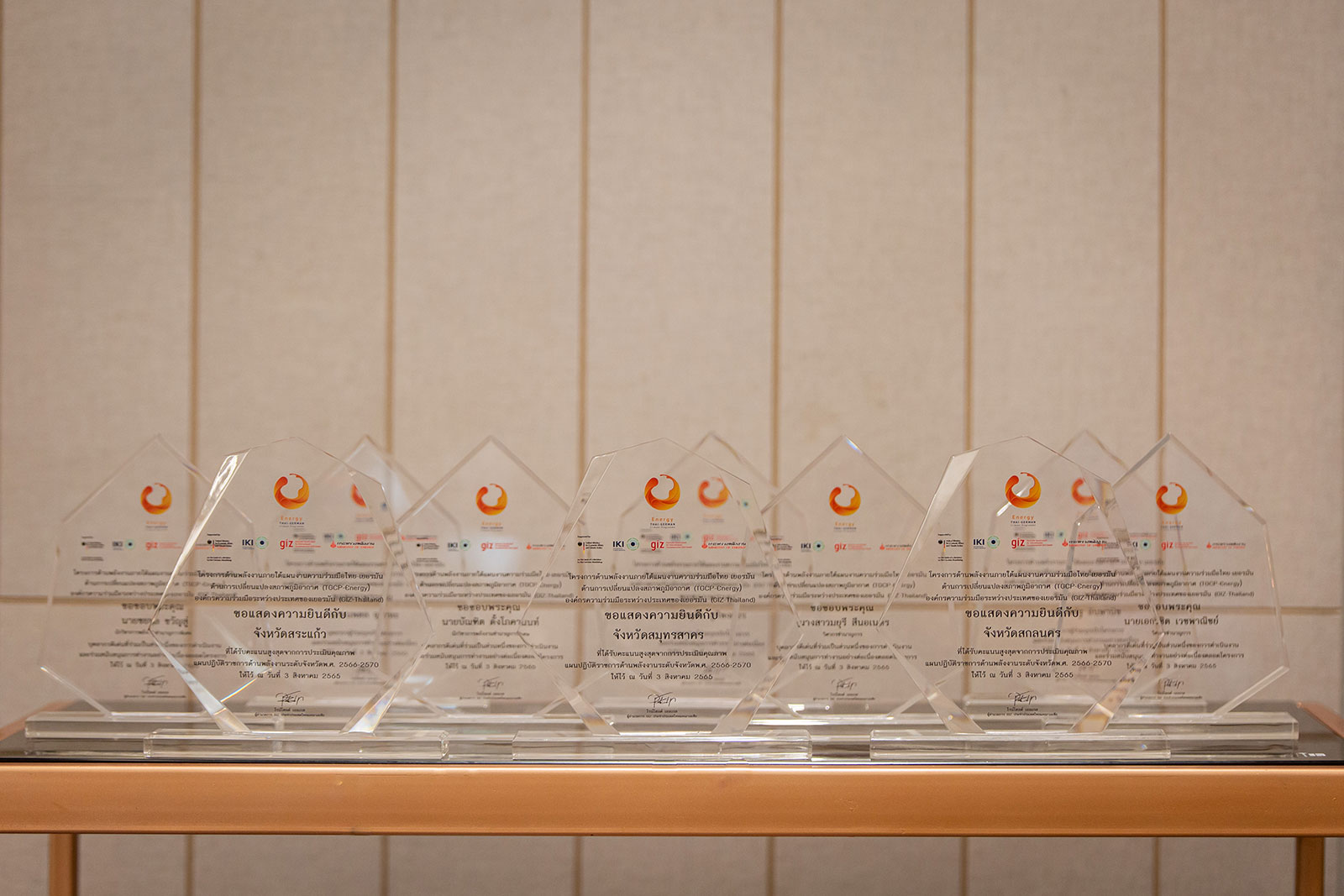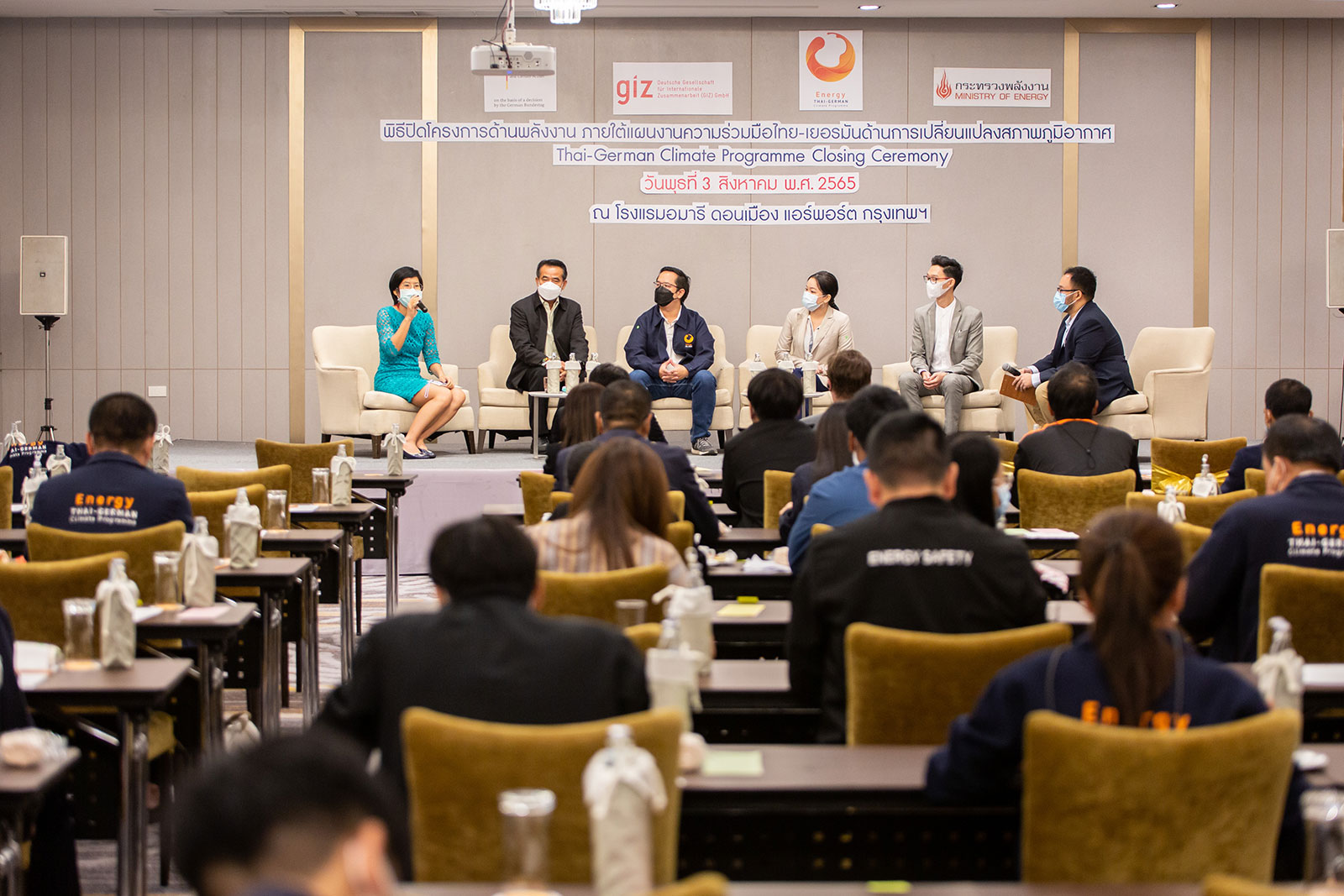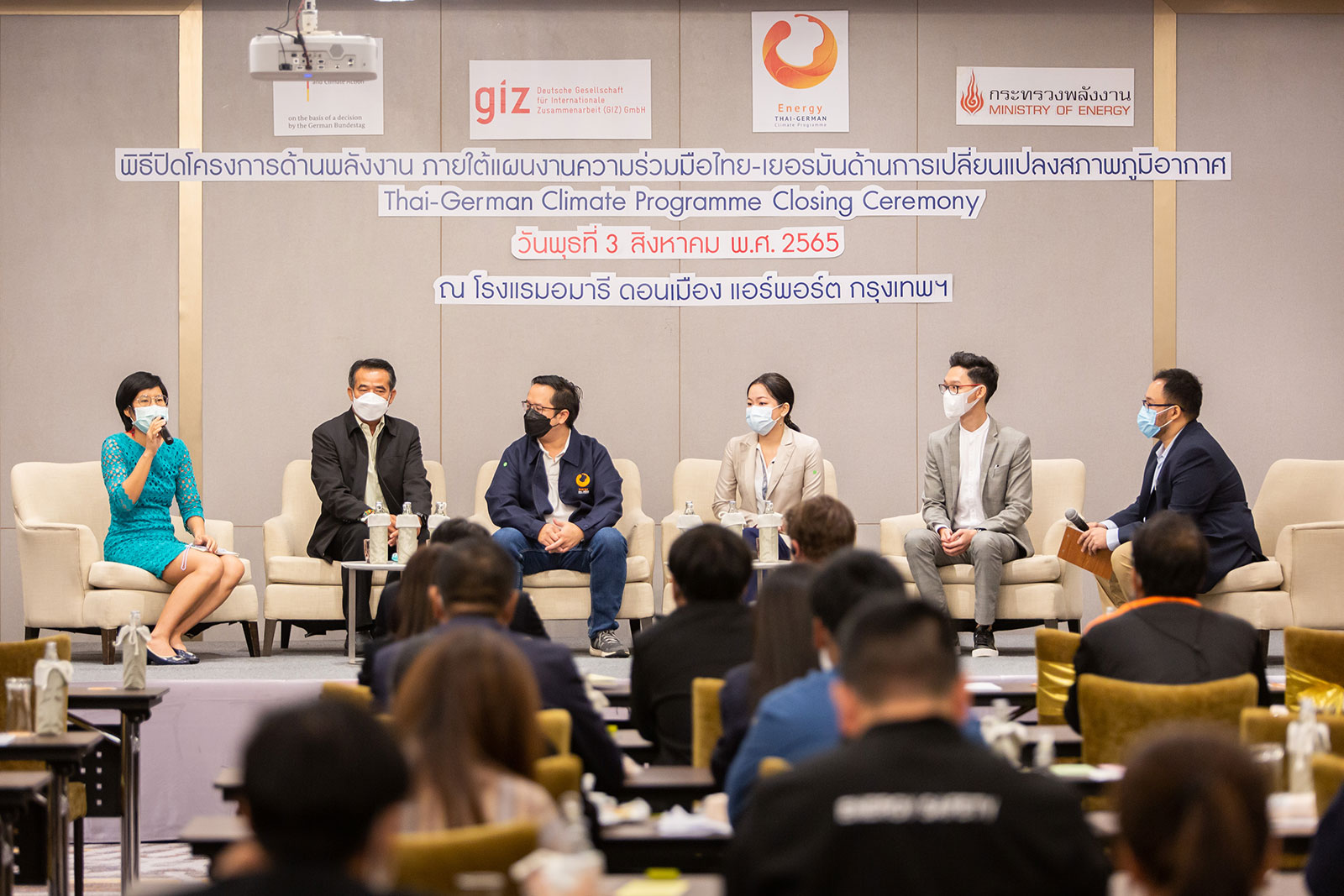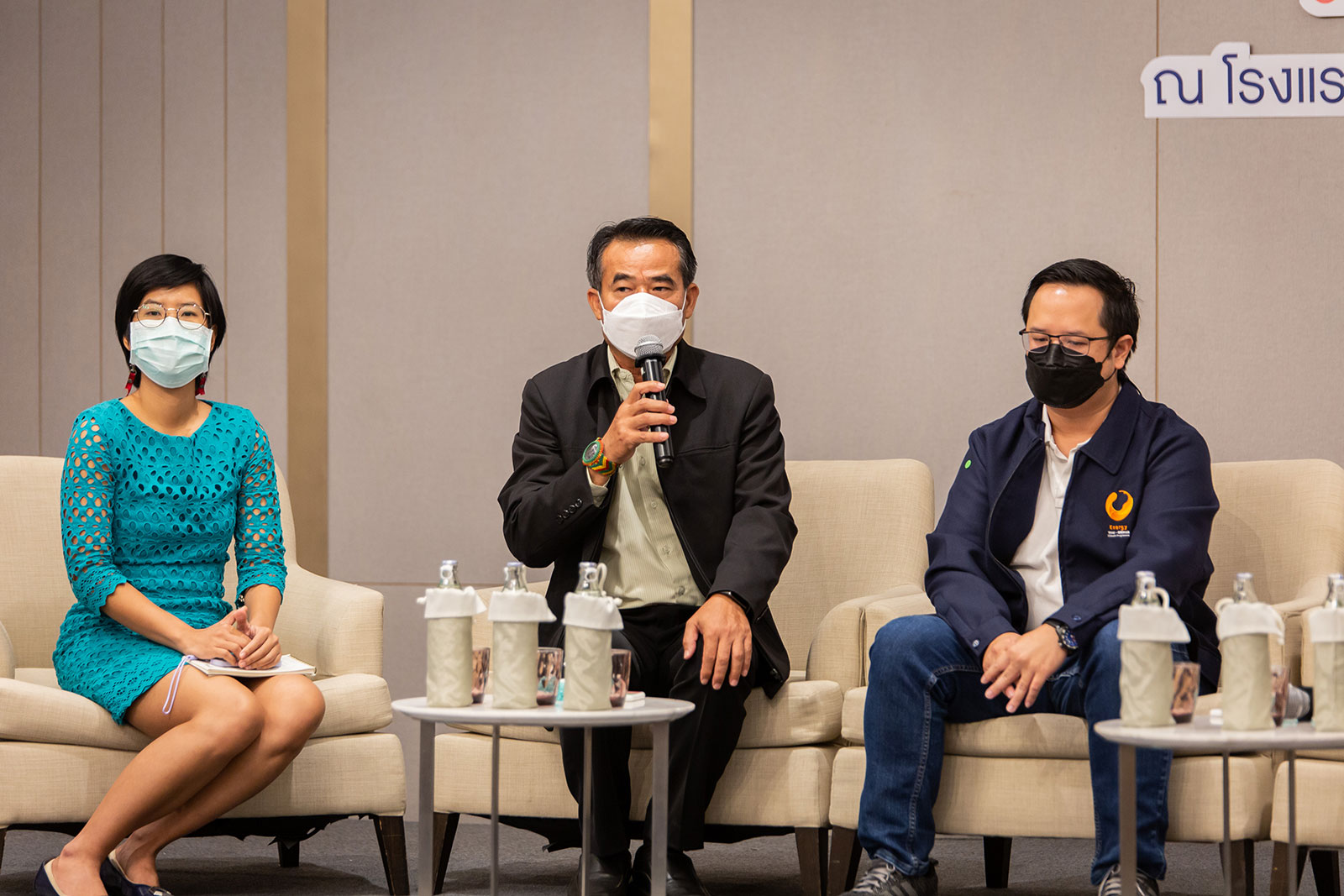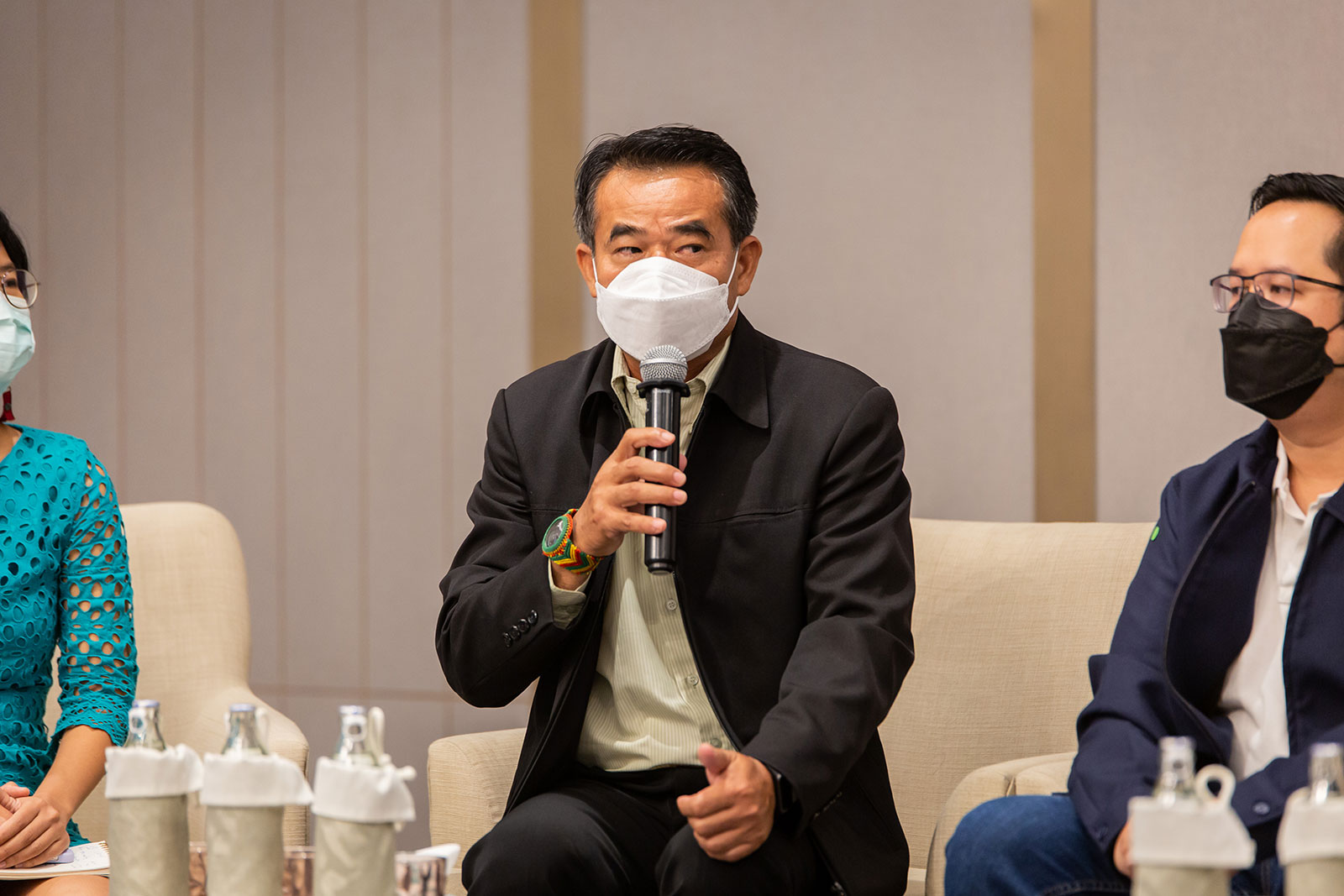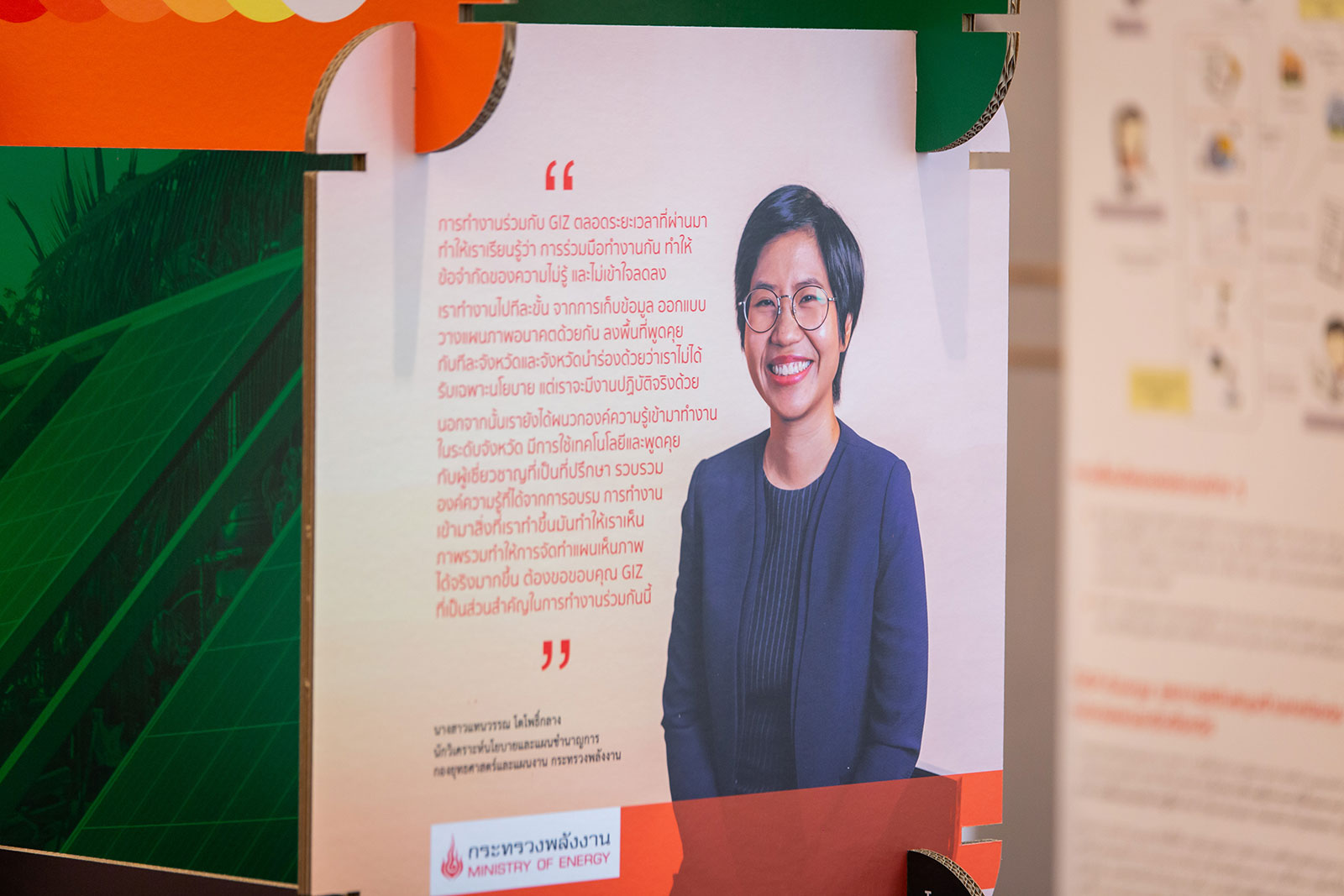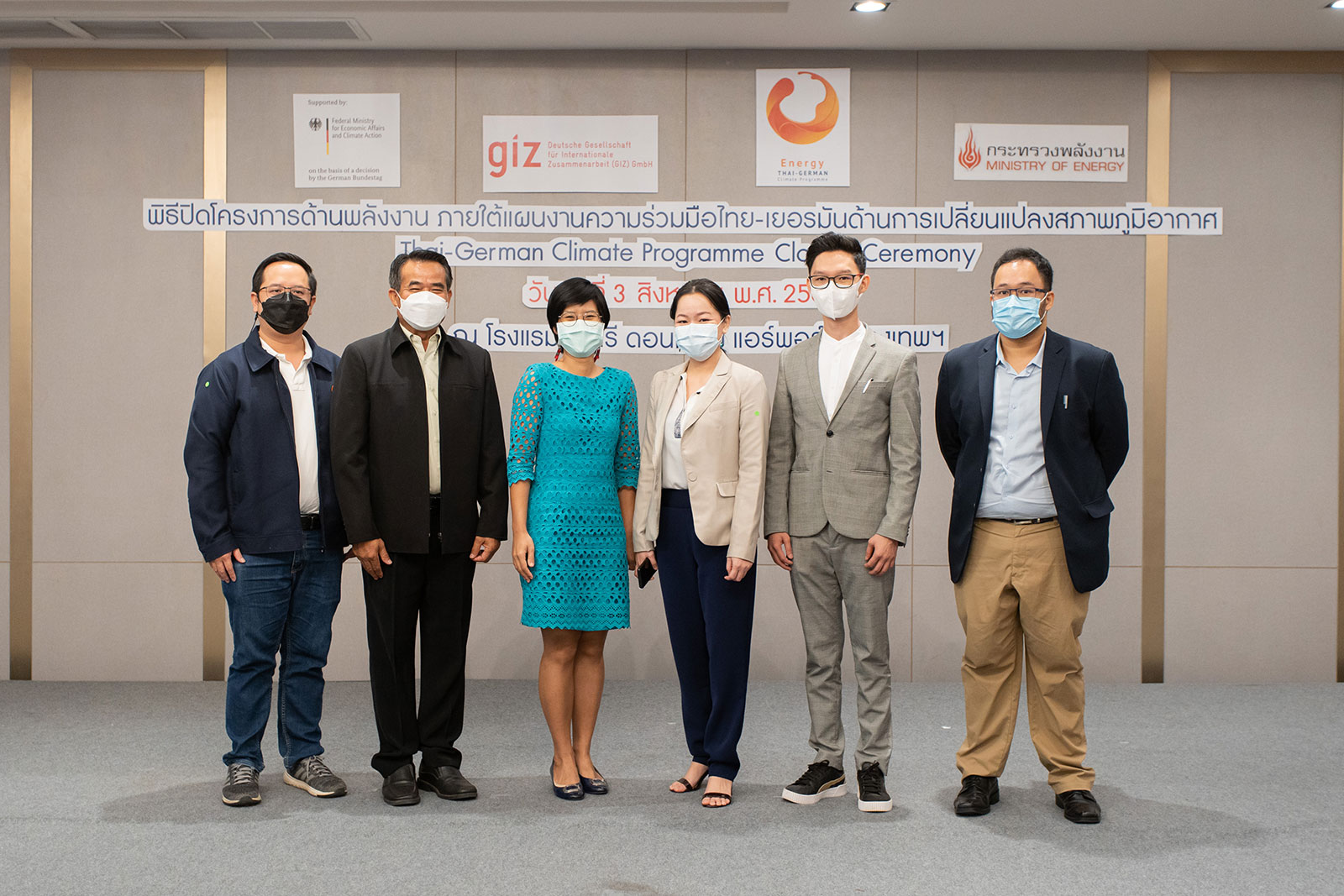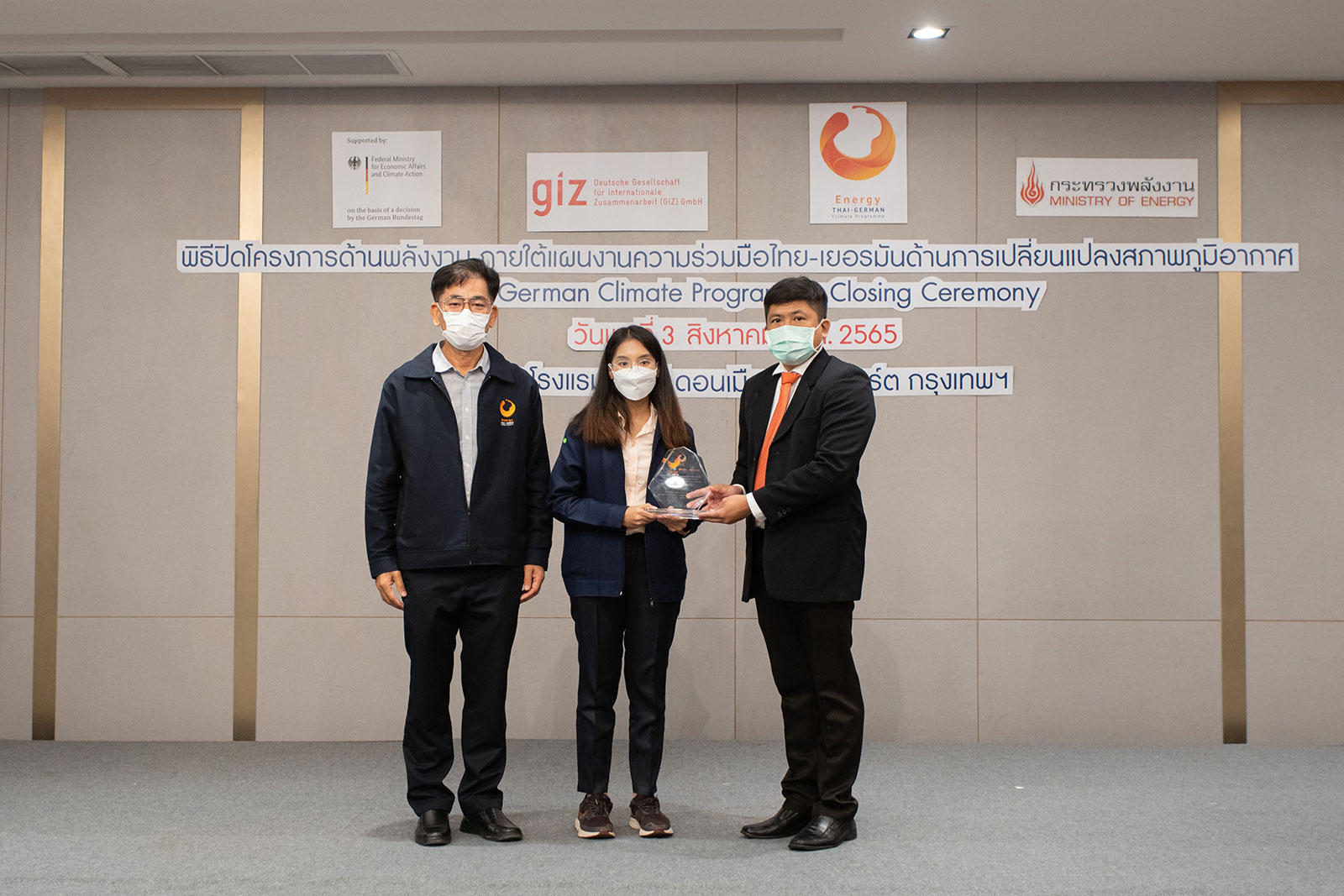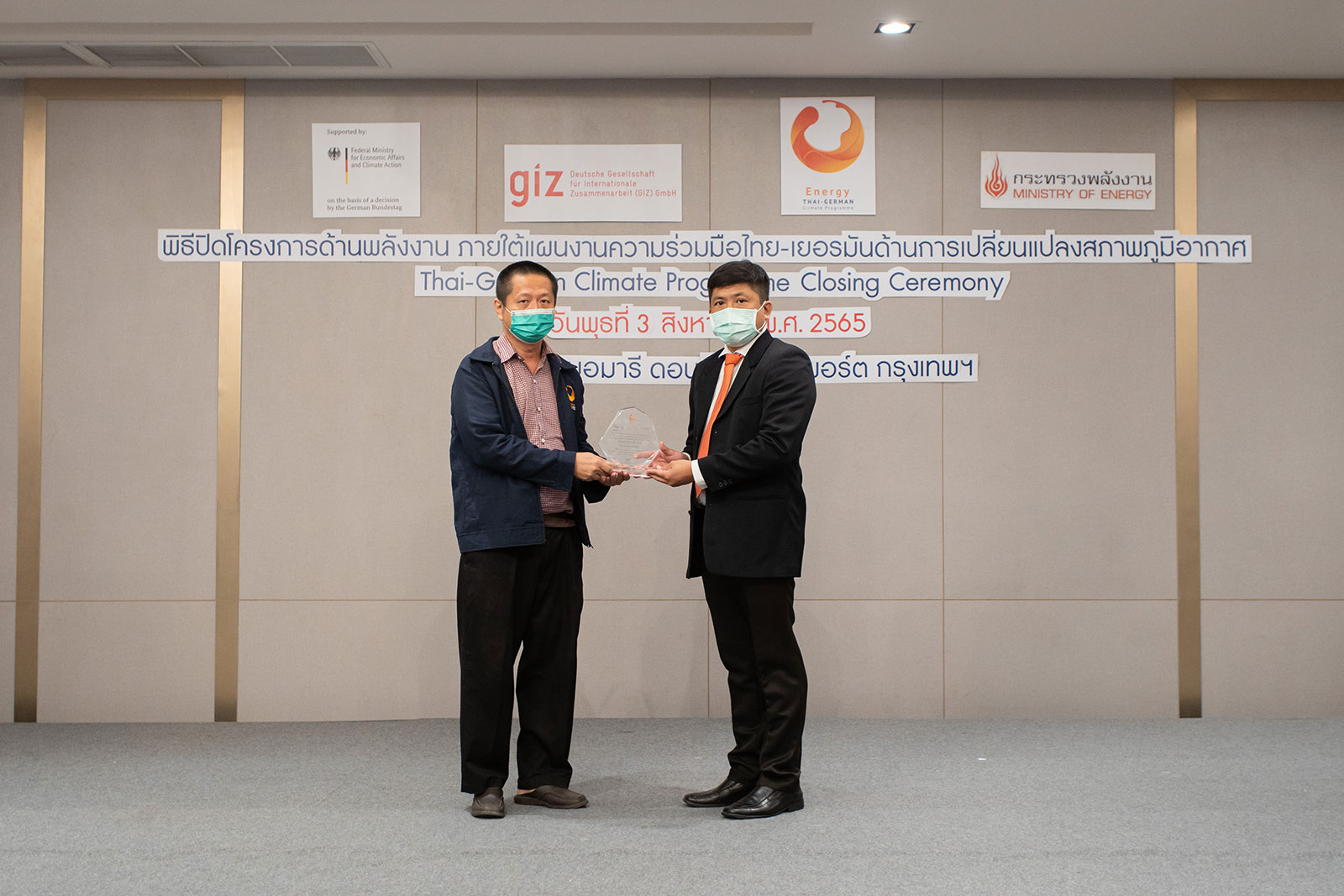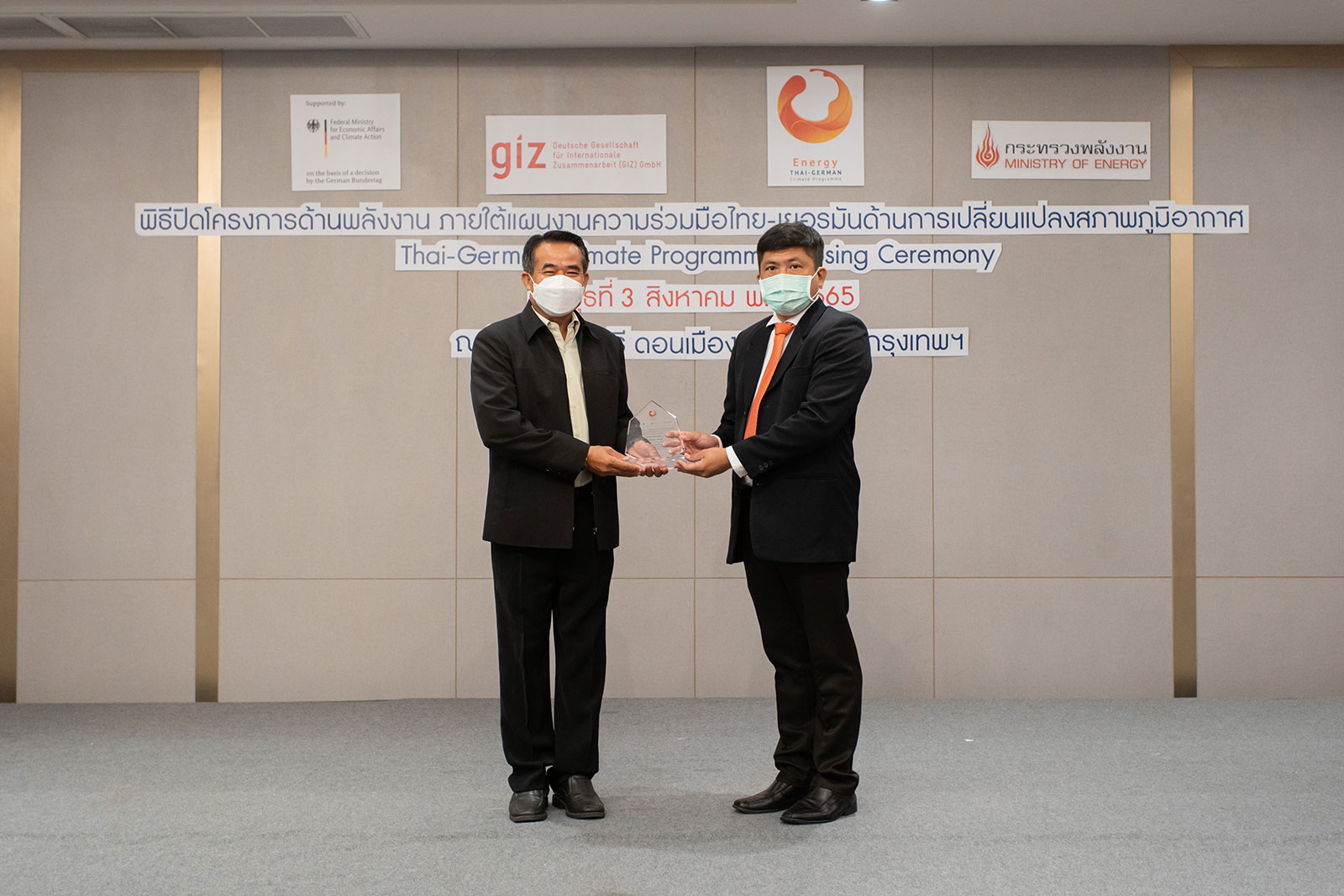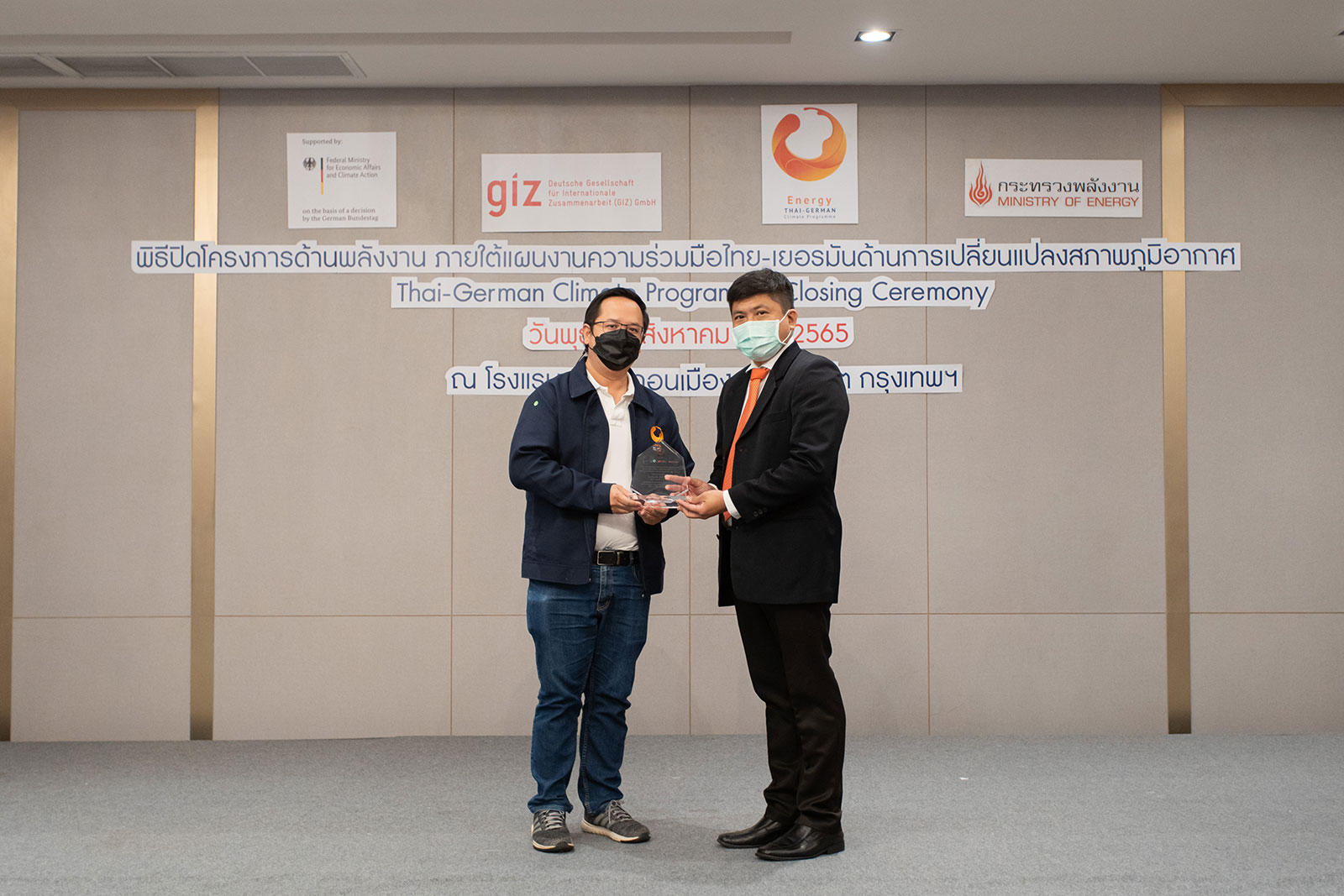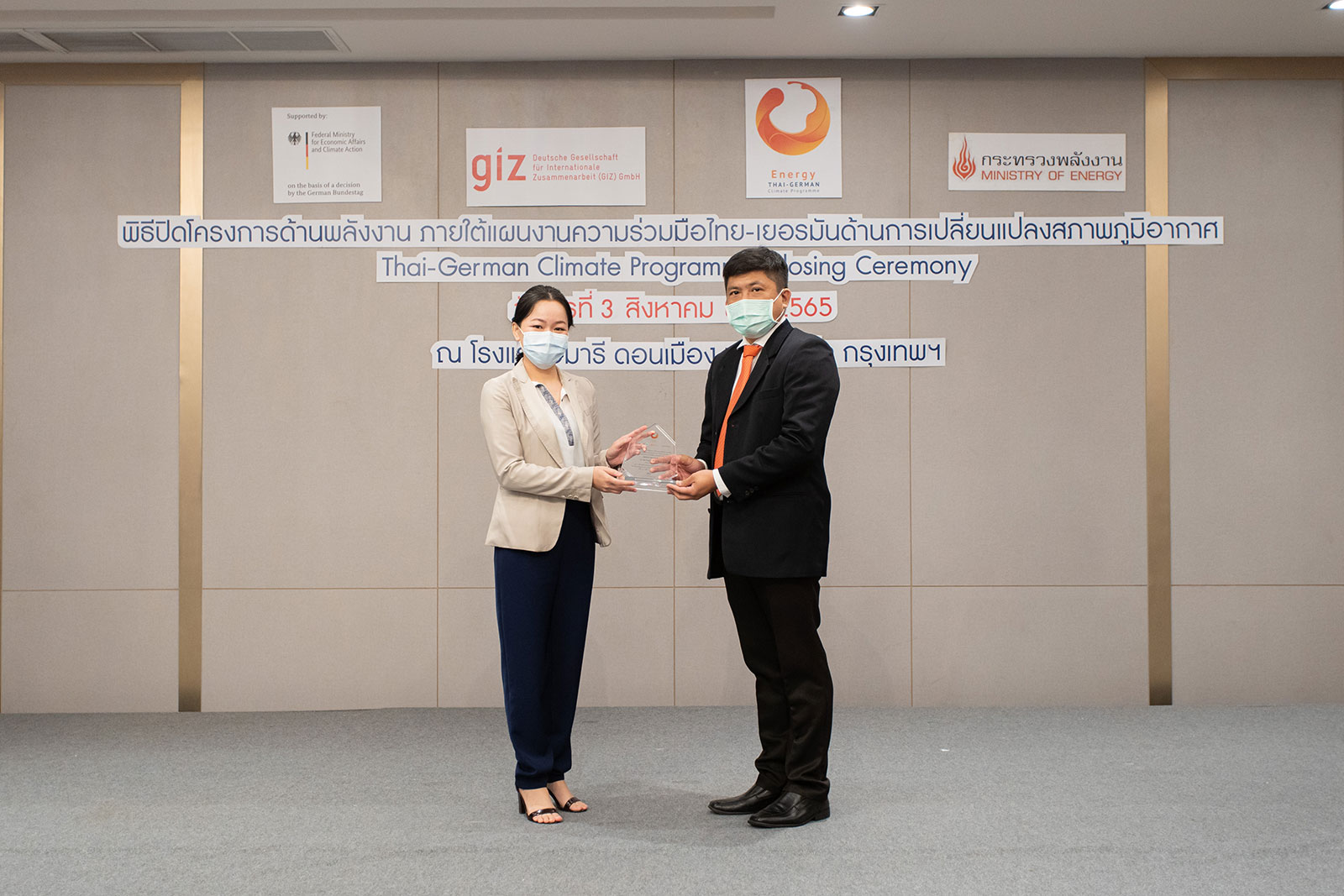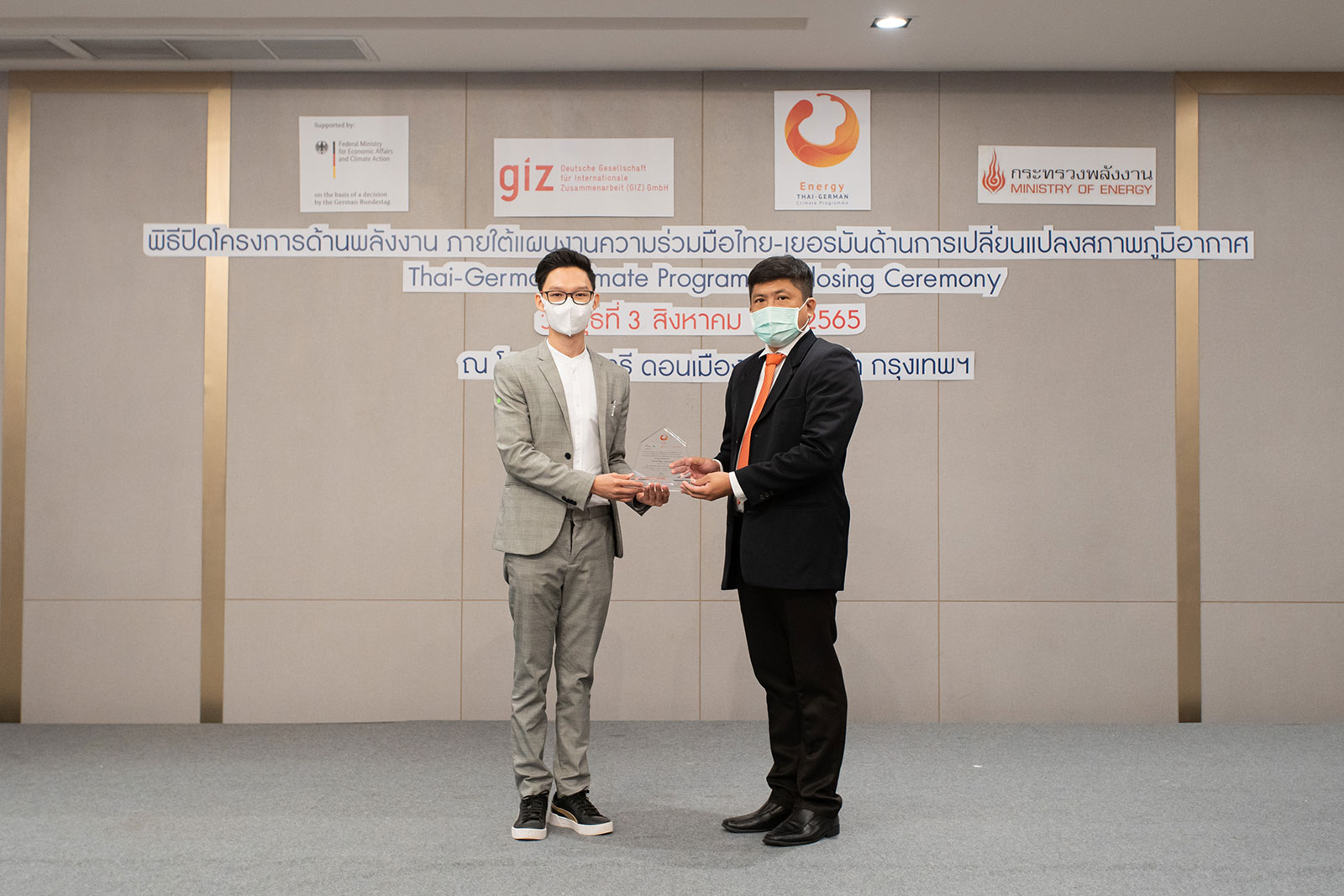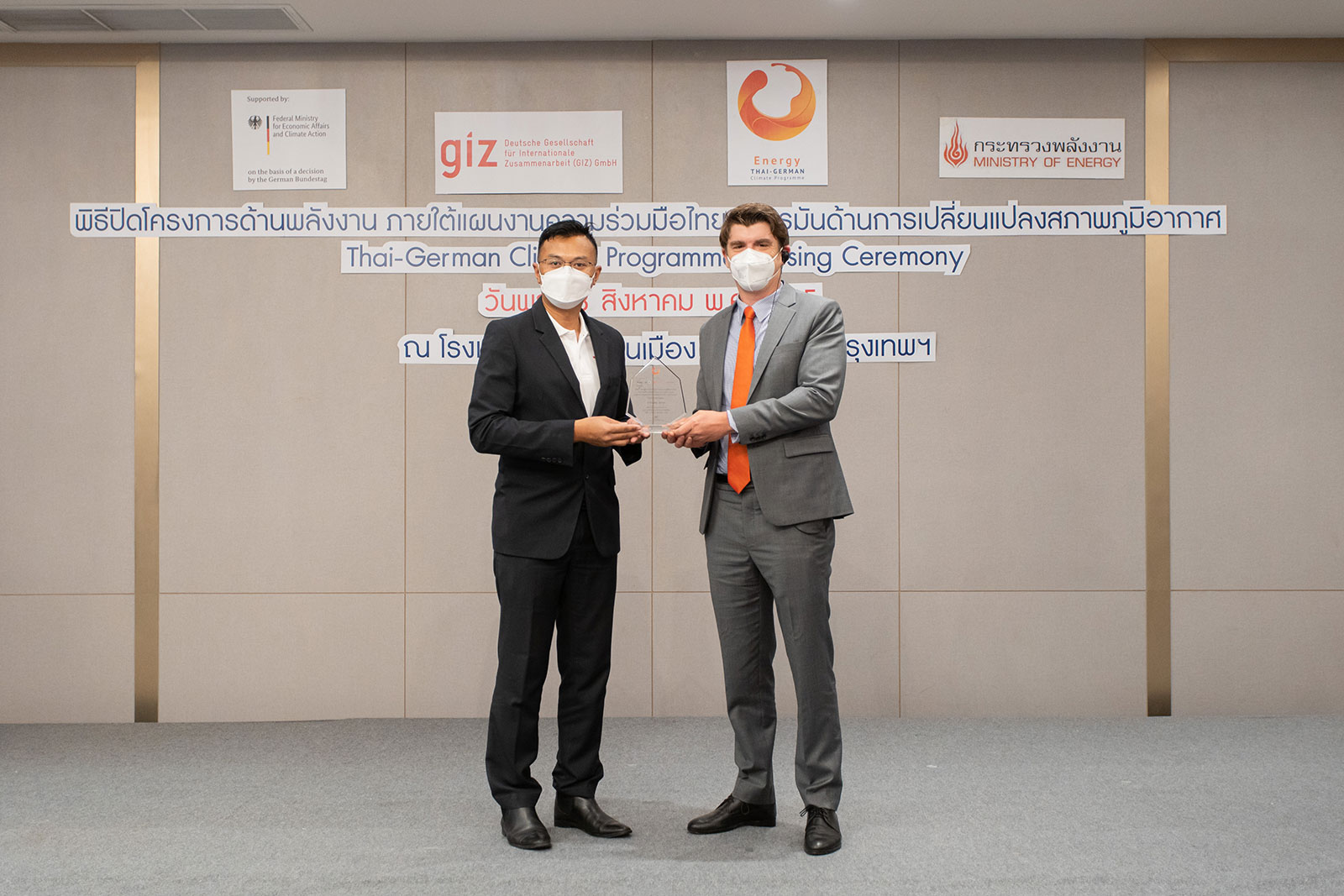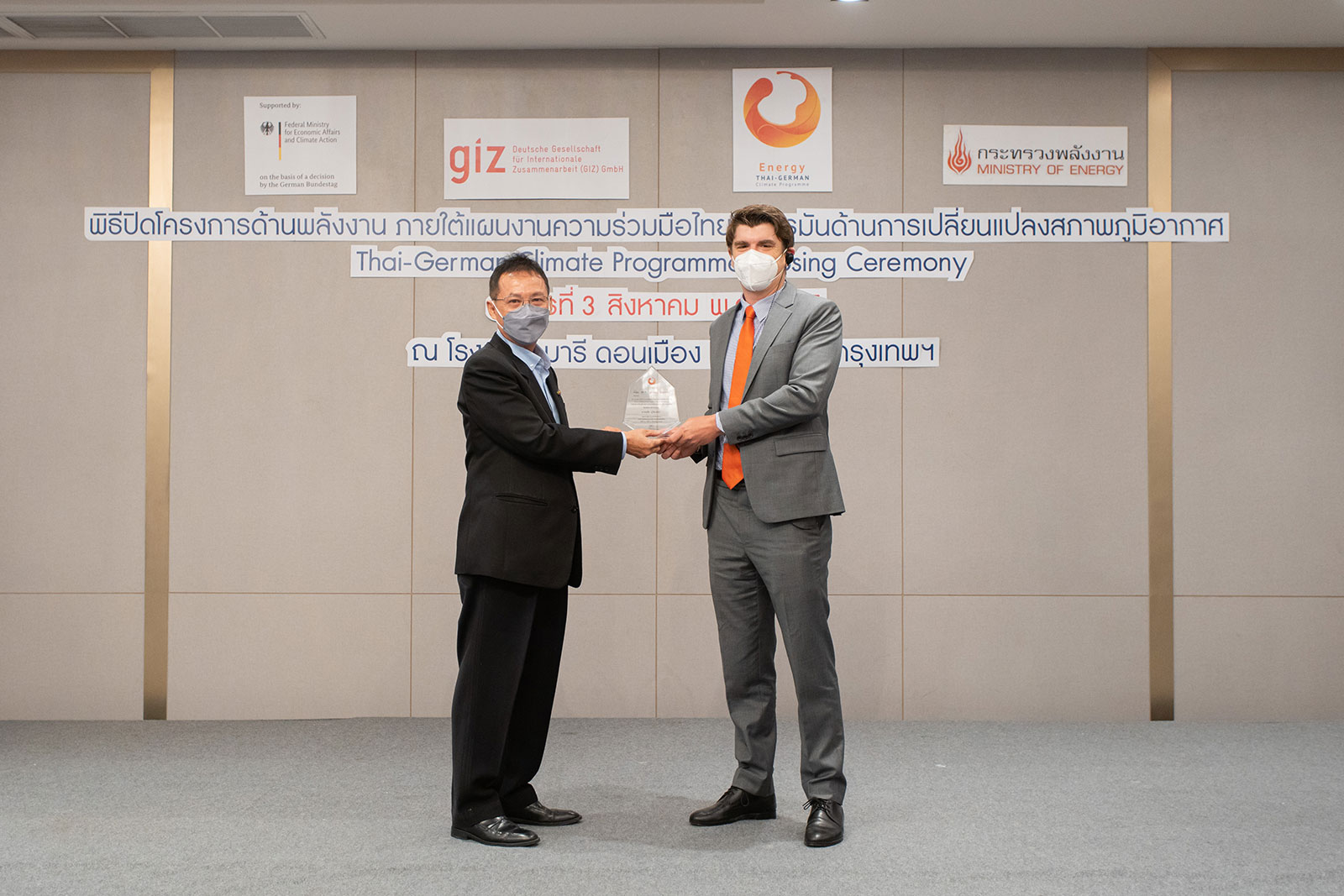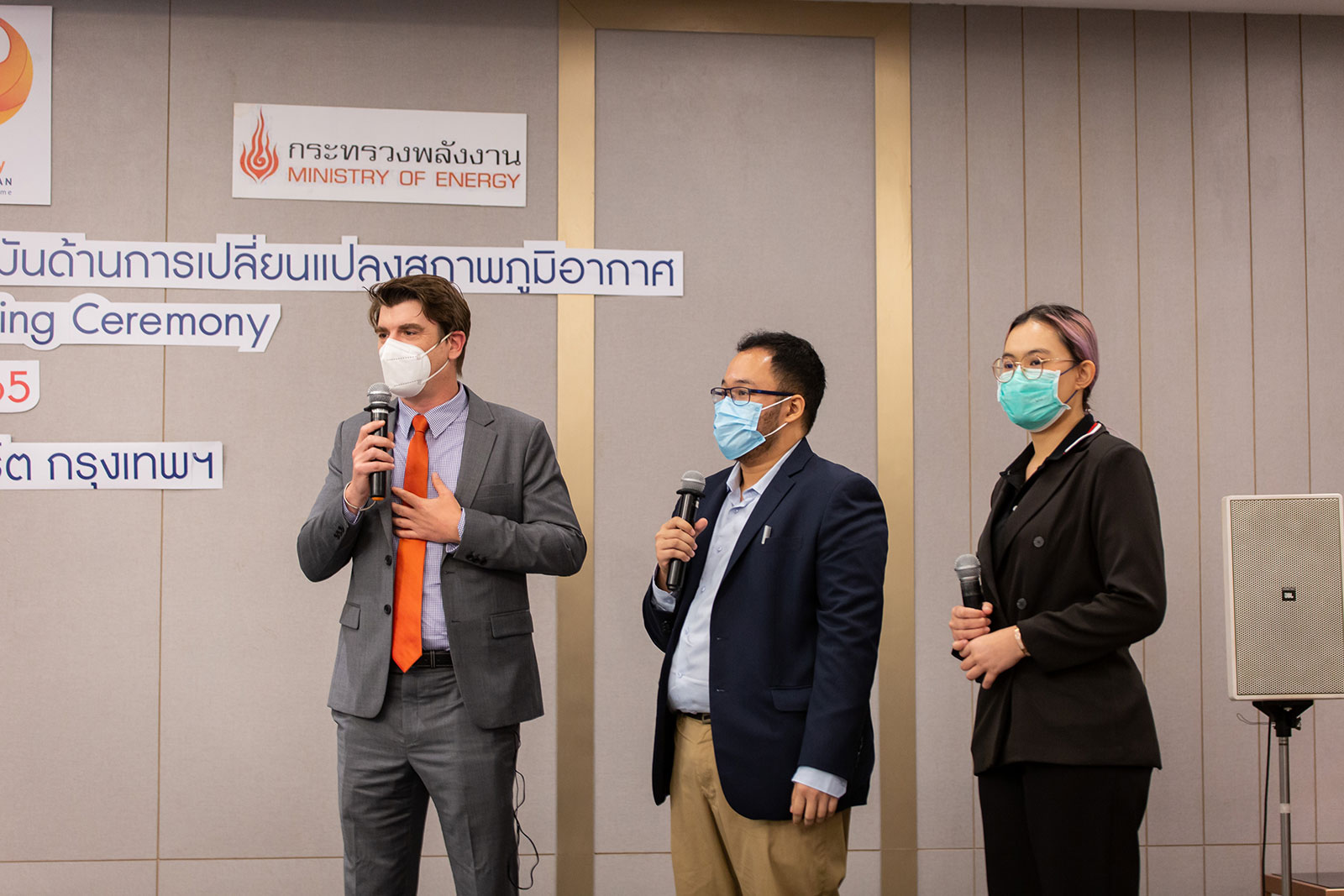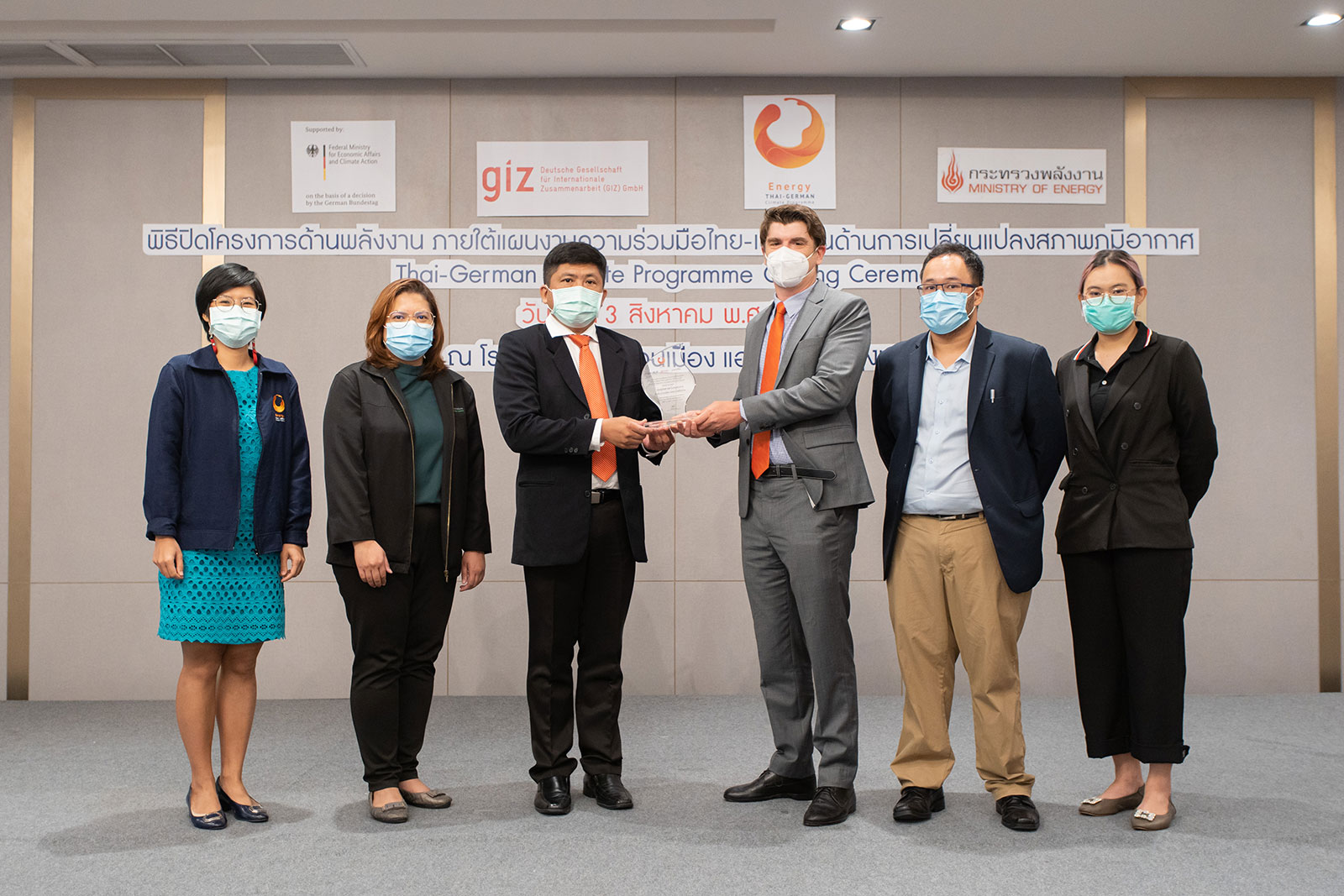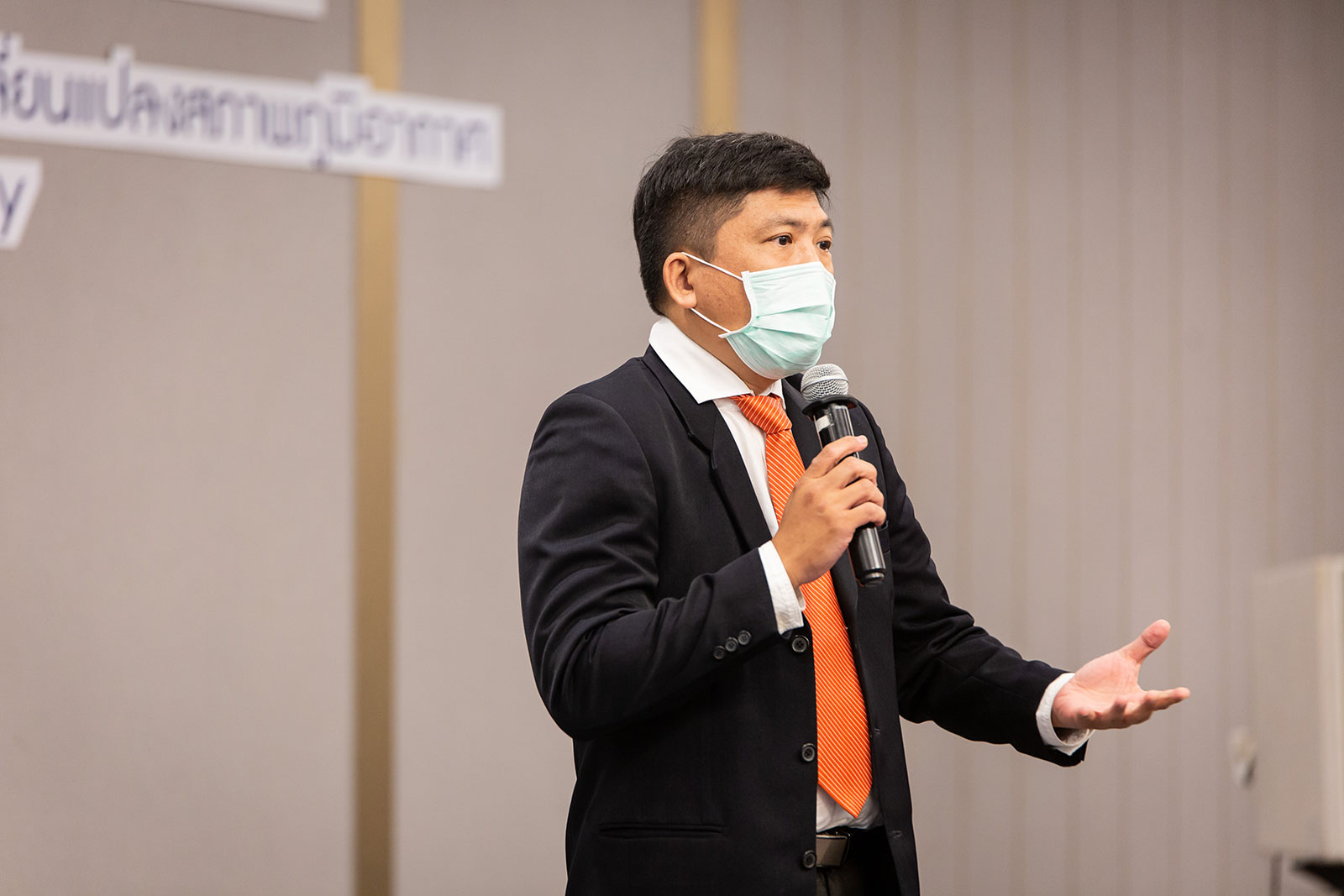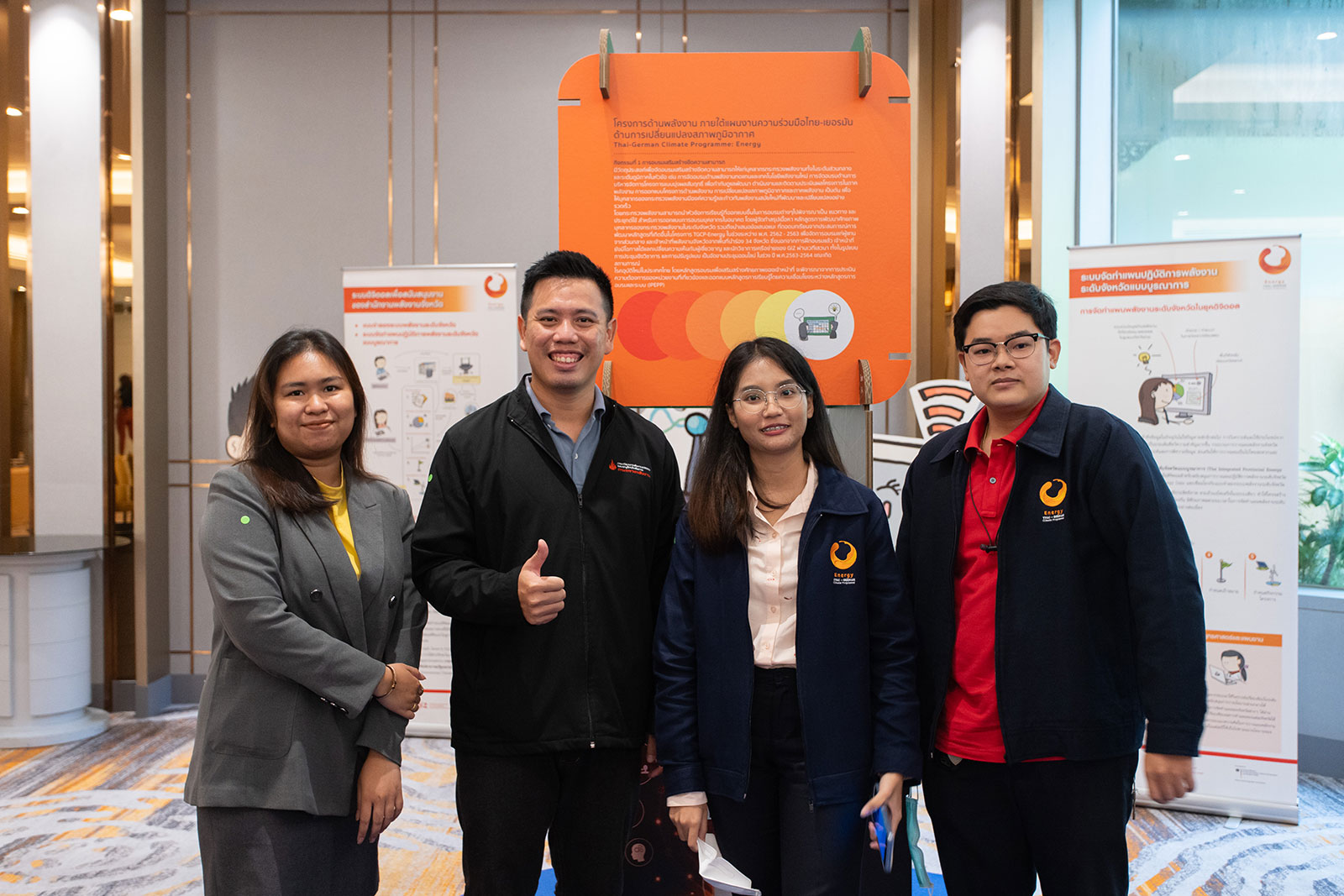GIZ recently organised the closing ceremony of the Thai-German Climate Programme – Energy Component (TGCP-Energy). After 5 years of implementation, 34 pilot provinces are now ready to transfer the lessons learned countrywide in line with the goal of achieving carbon neutrality.
On 3 August 2022, GIZ Thailand joined forces with the Ministry of Energy to celebrate the successful implementation of the Thai-German Climate Programme –Energy Component (TGCP-Energy). The project was designed to develop and strengthen the capacity of Thai policymakers and stakeholders in 34 provinces on Energy Efficiency and Clean Energy towards Thailand’s mission of Carbon Neutrality 2050 and net zero respectively.
Mr. Hans-Ulrich Südbeck, Deputy Chief of Mission and Head of the Economic Department of the German Embassy, addressed participants by summarising the world’s energy scenario, particularly during the war between Ukraine and Russia. The intense situation has had impacts all over the world, particularly on energy prices, and has led to a struggle for economic and social development.
“Our mission is to move to clean energy and carbon neutrality and here Germany is taking the lead in terms of investment and development. The country aims to expand the lessons learned and transfer the technology for clean energy to parts of the world with rapid economic expansion. South East Asia and Thailand in particular, is the pilot target area, as it is here where we have observed the potential with respect to both economic resources and manpower.”
The Thai-German Climate Programme – Energy component (TGCP-Energy) funded by the German government under The International Climate Initiative (IKI) since 2018, aims to support the Provincial Energy Offices (PEnOs) in creating effective and long-term energy planning processes and in project implementation through the use of innovative digital tools for effective provincial energy planning and implementation. PEnO is a regional institutional structure of the Thai Ministry of Energy (MoEN), which is taking the lead in energy planning that will respond to Thailand’s mission of Carbon Neutrality 2050 and net zero.
TGCP-Energy and the PEnOs drew up work plans and implemented the activities in 34 pilot provinces. By supporting the policymakers and office staff with digital tools and training programmes to increase understanding of energy planning, some of the target areas, including remote islands, were able to benefit from sustainable energy resources. TGCP-energy also promoted the use of technical tools to support the energy planning and data collection between MoEN and PEnO which will be used for future long-term energy planning.
Mr. Chatchai Khunlohit, Director of the Strategic and Planning Office, Ministry of Energy, said that the implementation of the TGCP-Energy, which was initially undertaken in 3 pilot provinces, would serve as an example and a lesson for other provinces to follow. “Above all, every stakeholder shall support the country’s goal to reduce Greenhouse Gas (GHG) emissions and work together towards carbon neutrality. Our thanks go to GIZ for the intensive programme implementation plan and action, as well as the tools introduced to support the work of MoEN effectively.”
Mr. Simon Rolland, Energy Programme Director, GIZ Thailand concluded by underlining the power of collaboration and the ability of Thailand in reaching the national target of GHG emissions. The work marked another milestone in Thailand’s Energy Efficiency Management of which everyone should be proud.
TGCP-Energy implemented the activities in Thailand by supporting the Ministry of Energy under 6 main pillars, namely 1) policy recommendations, 2) sub-national support and capacity building, 3) digital tools to improve data management, 4) conducting the energy scenario at the provincial level, 5) conducting training for the policymakers in pilot provinces, and 6) transferring the knowledge on energy management to the energy institutions in Thailand.



